
Dogs have been our friends for over 10,000 years. Whether you prefer a small pup, like a Chihuahua that comfortably fits in the nook of your arm, or a gentle giant like the Newfoundland, dogs of all breeds continue to meet the human desire for companionship.
While people across the country choose to adopt a wide variety of dogs, a select few breeds have been the most favorable over the years. The top dog breed has actually been ranked as the top breed for over 20 consecutive years, according to purebred dog registry American Kennel Club’s records.
Conversely, some dogs that didn’t even make the top 35 most popular breeds a decade ago, were a hit in 2016. Most notably, the French Bulldog ranked sixth in 2016, but it ranked 36th a decade ago, and was 82nd in two decades ago.
The diverse dog breeds on this list reflect a wide range of preferences among canine lovers. Regardless of the rank, each breed has its own distinctive traits and is adored by many. Read on to discover a quirky fact that you may not have known about your beloved canine.
To identify the top 35 most popular dog breeds in the United States, 24/7 Wall St. reviewed breed records for 2016 from the American Kennel Club (AKC), which currently registers 189 dog breeds. We also reviewed the American Veterinary Medical Association’s 2012 edition of the U.S. Pet Ownership & Demographics Sourcebook, which tracks 173 dog breeds, to retrieve the rankings from 2006 and 1996. The typical lifespan and average cost of each breed was provided by the AKC.
Click here to see the most popular dog breeds of 2016.
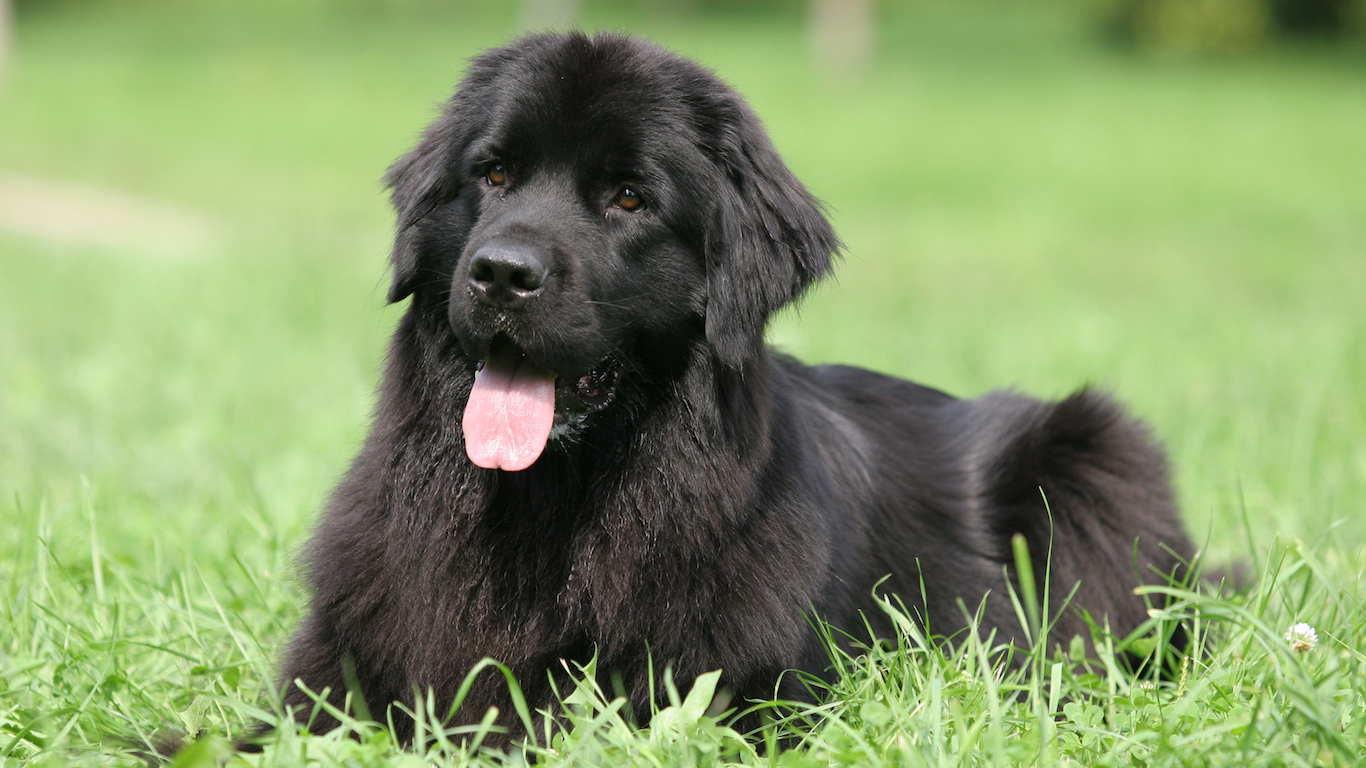
35. Newfoundlands
> Rank in 2006: 44
> Rank in 1996: 50
> Typical life span: 9 to 10 years
> Average puppy price: $2,000
If you’ve never owned a Newfoundland or knew of anyone that did, you may be in awe of its size when you first encounter one. To give you a mental image, a male typically stands over 2 feet tall and weighs up to 150 lbs. Aside from being a large pup, Newfoundlands are known for being excellent long distance swimmers thanks to their lung capacity and webbed paws.
[in-text-ad]
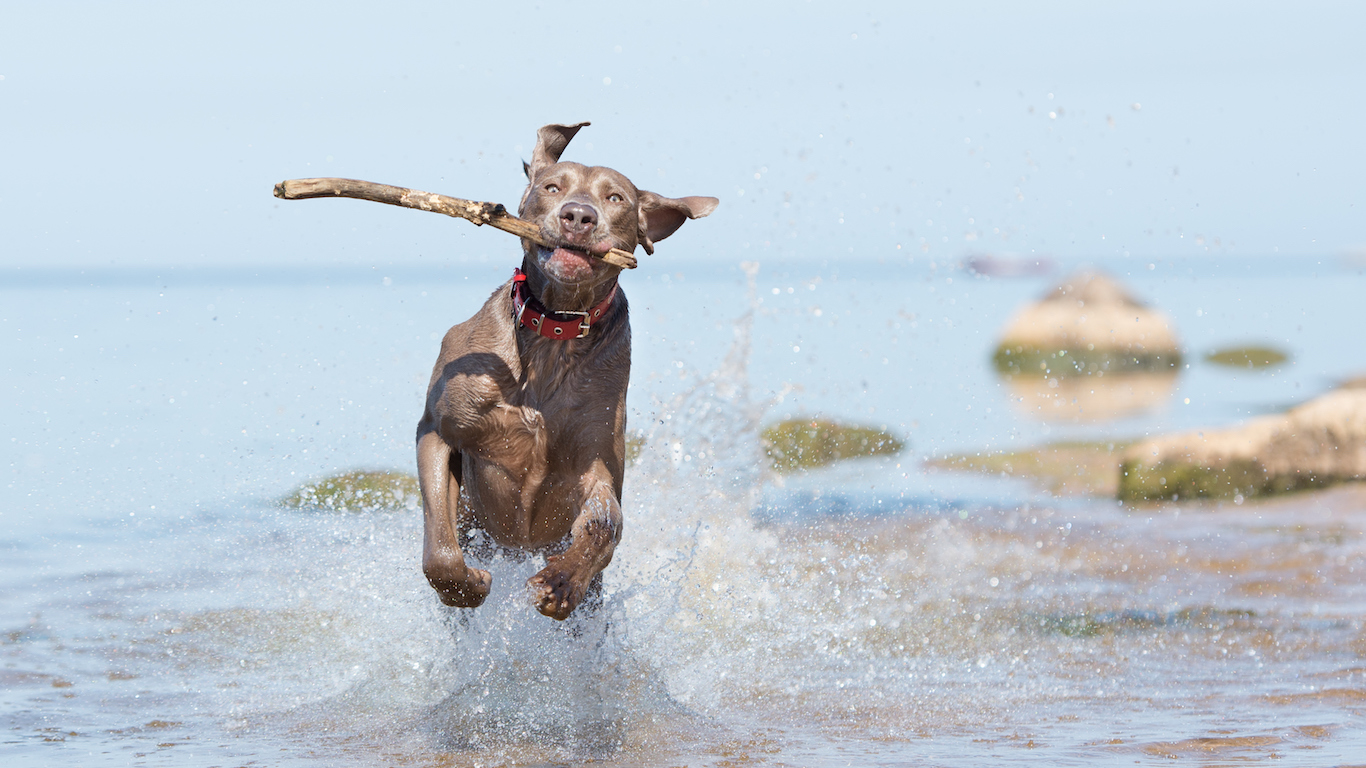
34. Weimaraners
> Rank in 2006: 30
> Rank in 1996: 39
> Typical life span: 10 to 13 years
> Average puppy price: $1,500
Similar to human eyes, Weimaraners’ eyes can change color over the course of their life. Weimaraner puppies are known for sleek, silver-gray coloration, and their bright blue eyes. The Weimaraners are popular hunting and retrieving dogs.
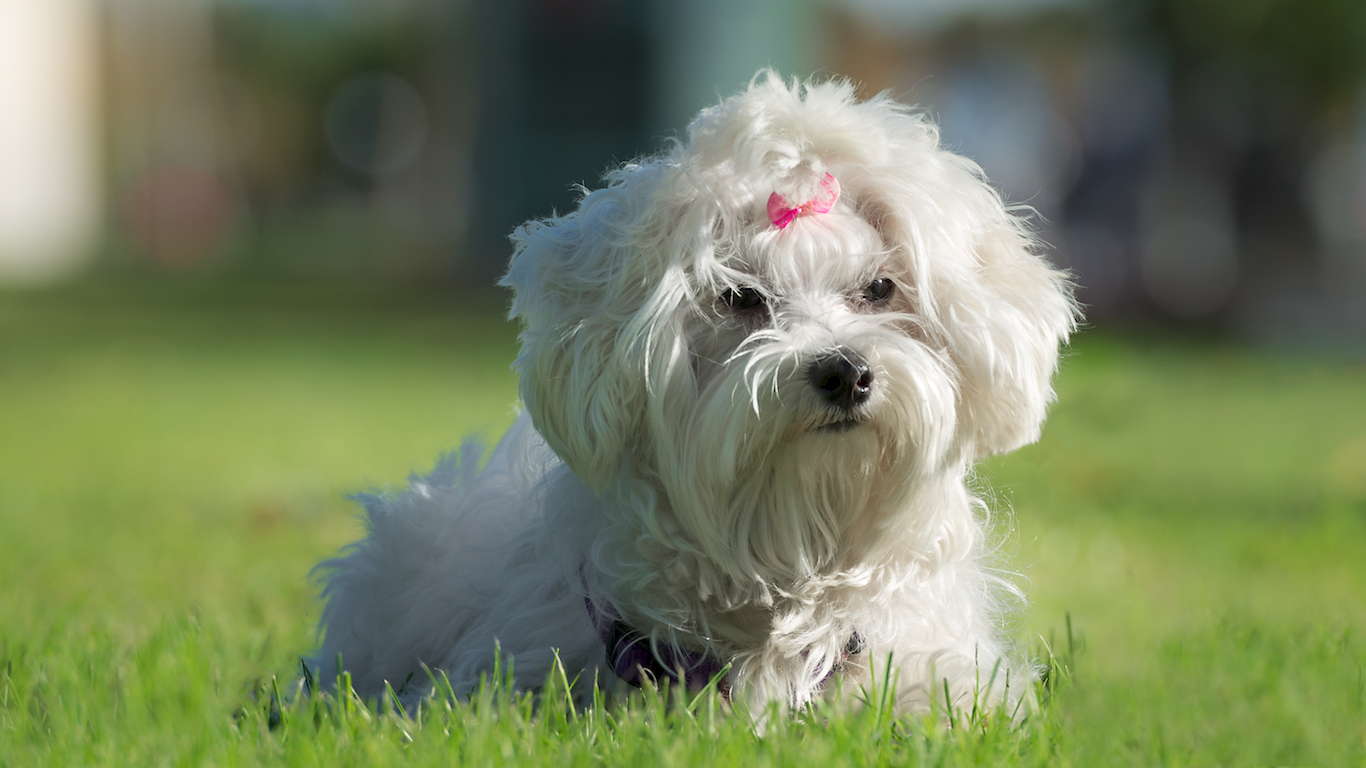
33. Maltese
> Rank in 2006: 18
> Rank in 1996: 23
> Typical life span: 12 to 15 years
> Average puppy price: $2,000
The Maltese has been around for quite a few years. Domestication of the Maltese, known as the ancient dog of Malta, is well documented as early as 2,800 years ago. Images of the Maltese dog can be found as early as 600 B.C. on Egyptian artifacts, and the breed is even mentioned in writings by world renowned Greek and Roman philosophers such as Aristotle.
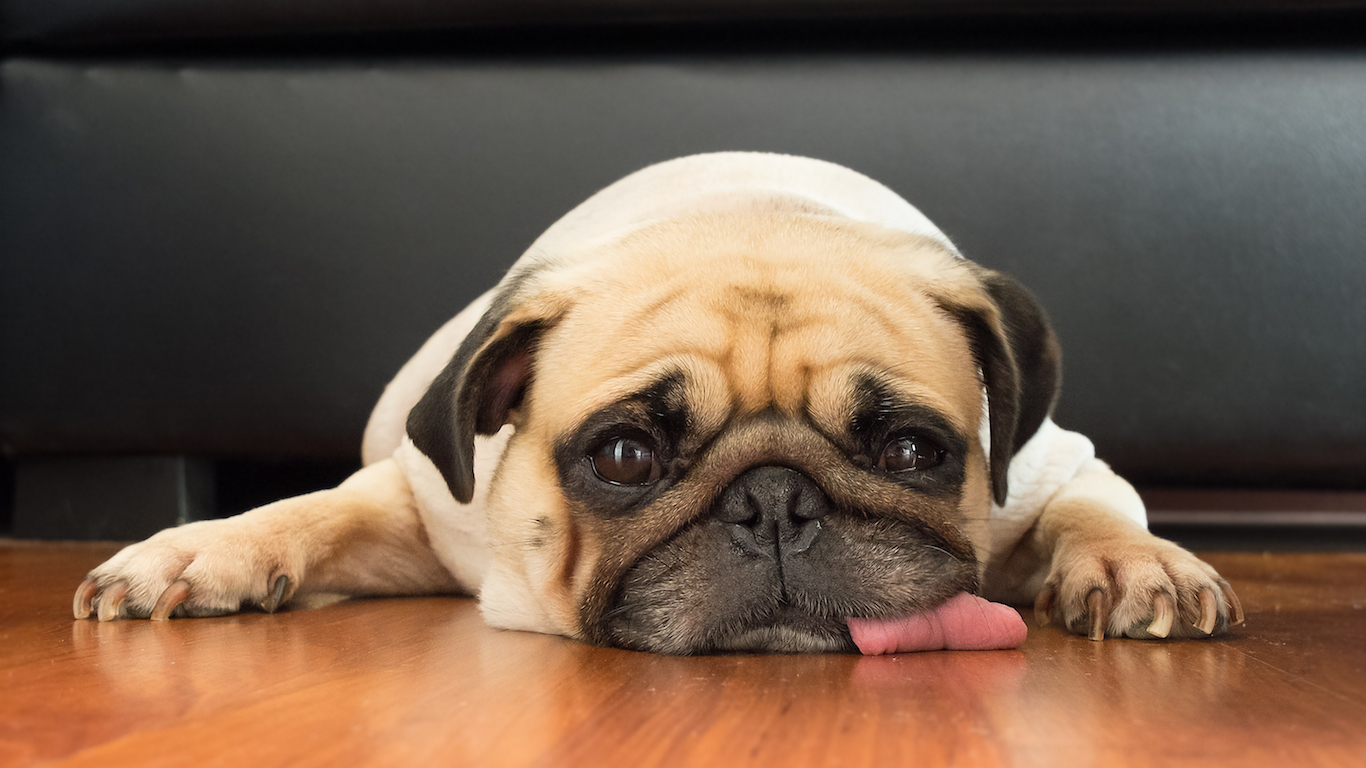
32. Pugs
> Rank in 2006: 13
> Rank in 1996: 19
> Typical life span: 13 to 15 years
> Average puppy price: $1,500
Whether you find the breed to be irresistibly adorable or repulsive, one thing’s for certain, the dog goes down in history as a hero. During the 16th century, the Dutch were in the midst of fighting the Spanish in the 80-years war. According to one legend, Prince William of Orange’s trusty pug, Pompey, barked and woke the prince, saving him from lurking Spanish assassins. Since that time, the pug has been the official breed of the House of Orange.
[in-text-ad-2]
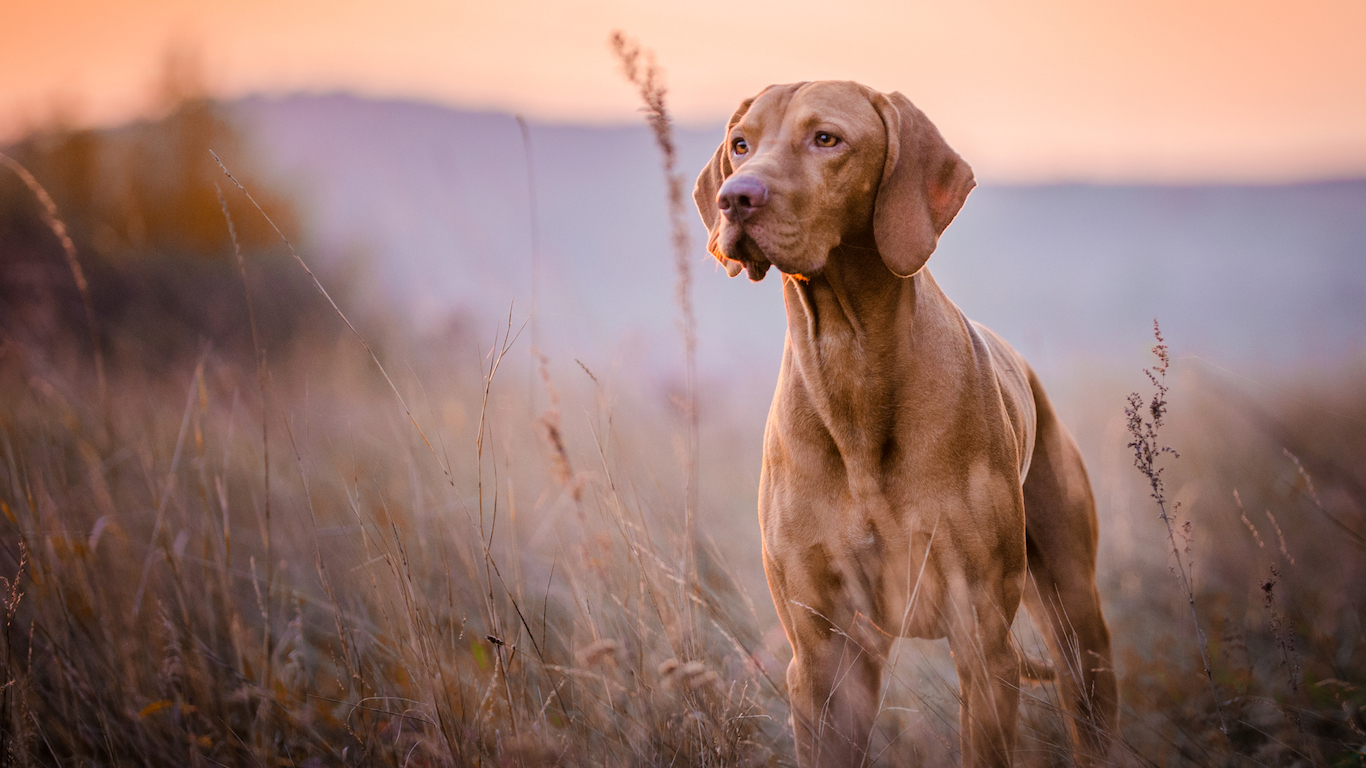
31. Vizslas
> Rank in 2006: 43
> Rank in 1996: 54
> Typical life span: 12 to 14 years
> Average puppy price: $1,500
Also referred to as the Hungarian Pointer, the Vizsla may date back over 1,000 years. There are depictions of the Vizsla being used as hunting dogs from the early 10th century, when Magyar tribes invaded Central Europe.
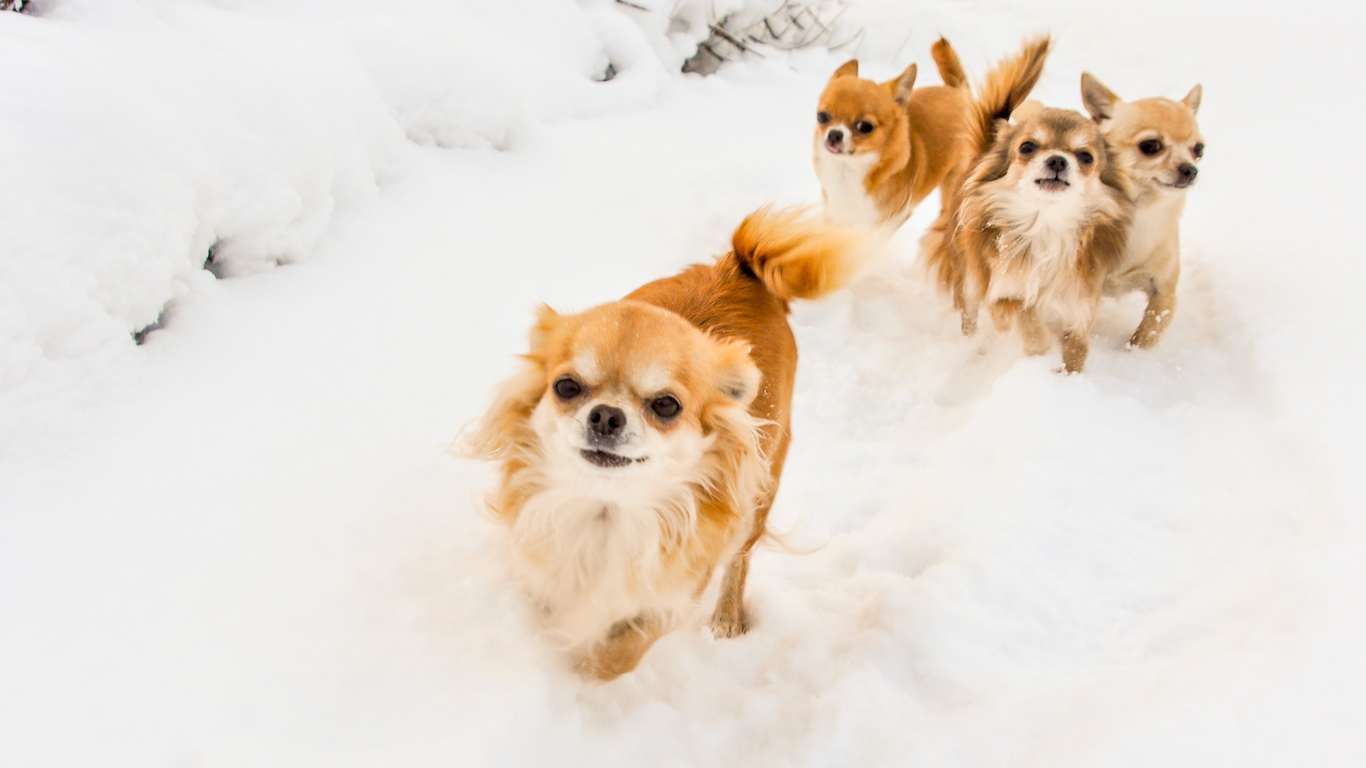
30. Chihuahuas
> Rank in 2006: 11
> Rank in 1996: 12
> Typical life span: 14 to 16 years
> Average puppy price: $1,500
Did you know that the Chihuahua has the biggest brain (relative to its size) in the dog world? Despite the breed’s ability to learn tricks quickly, Chihuahuas are infamous for being exceedingly difficult to housebreak. Generally, larger dogs live shorter lives. Perhaps due its small size, the Chihuahua, with an average life span range of 14 to 16 years, tends to live longer than most dogs.
[in-text-ad]
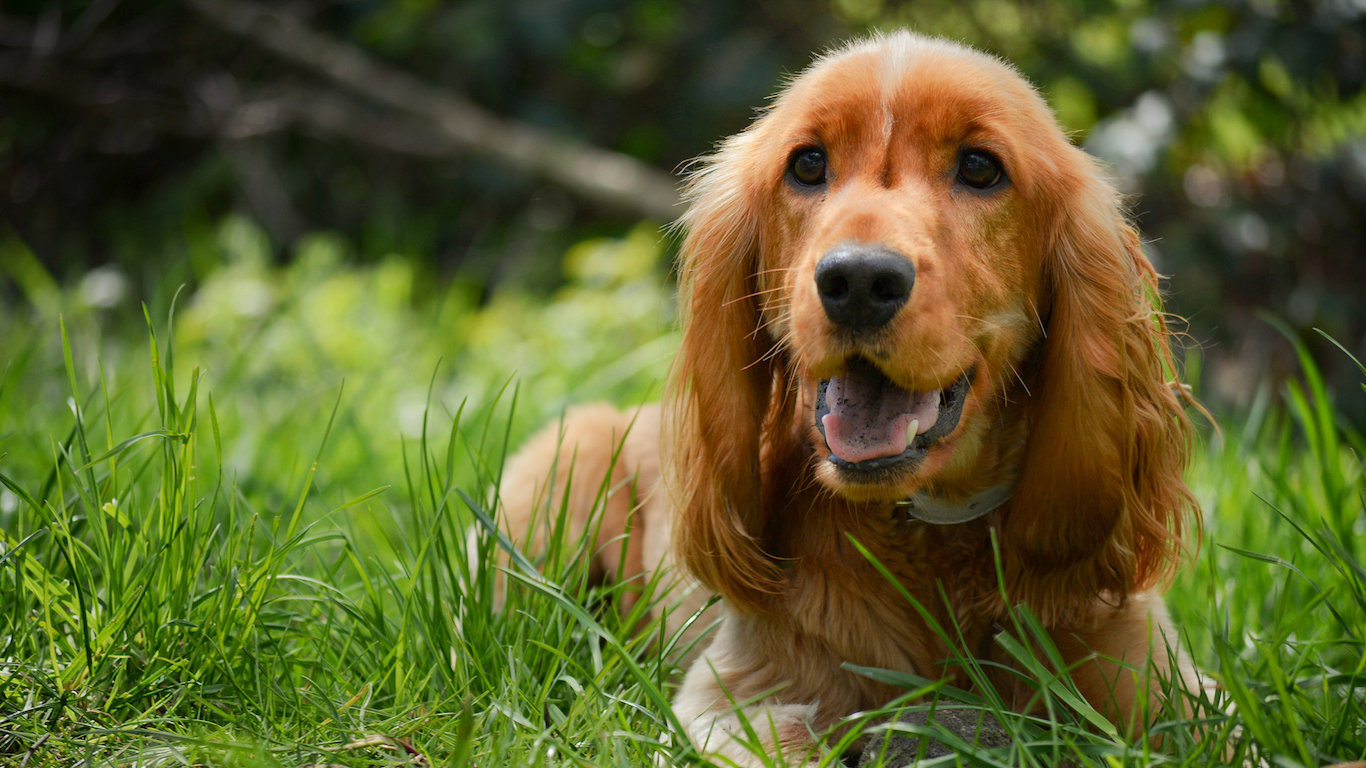
29. Cocker Spaniels
> Rank in 2006: 16
> Rank in 1996: 8
> Typical life span: 10 to 14 years
> Average puppy price: $1,000
While the continuity of dog breeds cannot be traced back further than early 19th century, the first Cocker Spaniel may have arrived in the United States via the Mayflower in 1620. According to breed authorities, Cocker Spaniels are especially competent hunting woodcocks — the breed’s namesake.
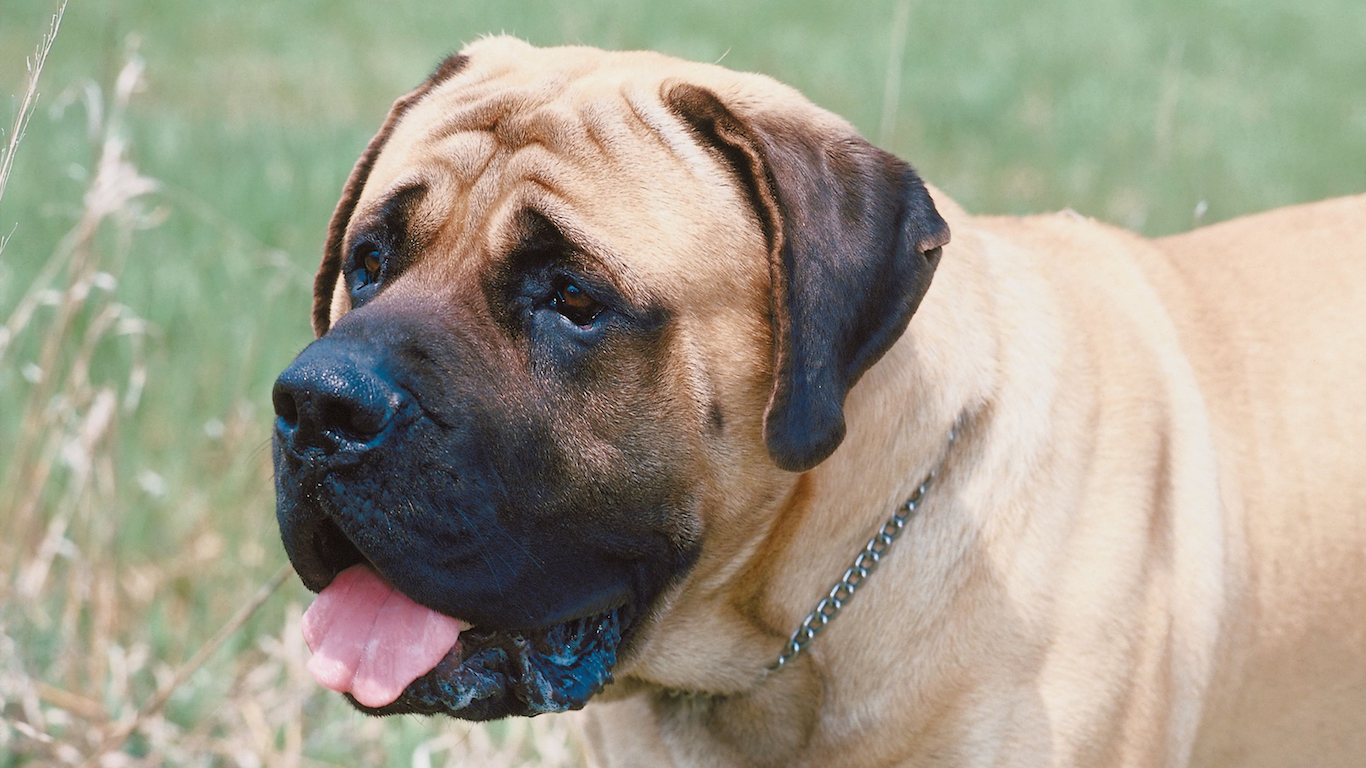
28. Mastiffs
> Rank in 2006: 32
> Rank in 1996: 43
> Typical life span: 6 to 10 years
> Average puppy price: $1,500
Although these dogs get to be quite large, they don’t officially finish maturing until about three years of age. According to the AKC, this breed has a longer puppy phase than most other breeds. Lucky you!
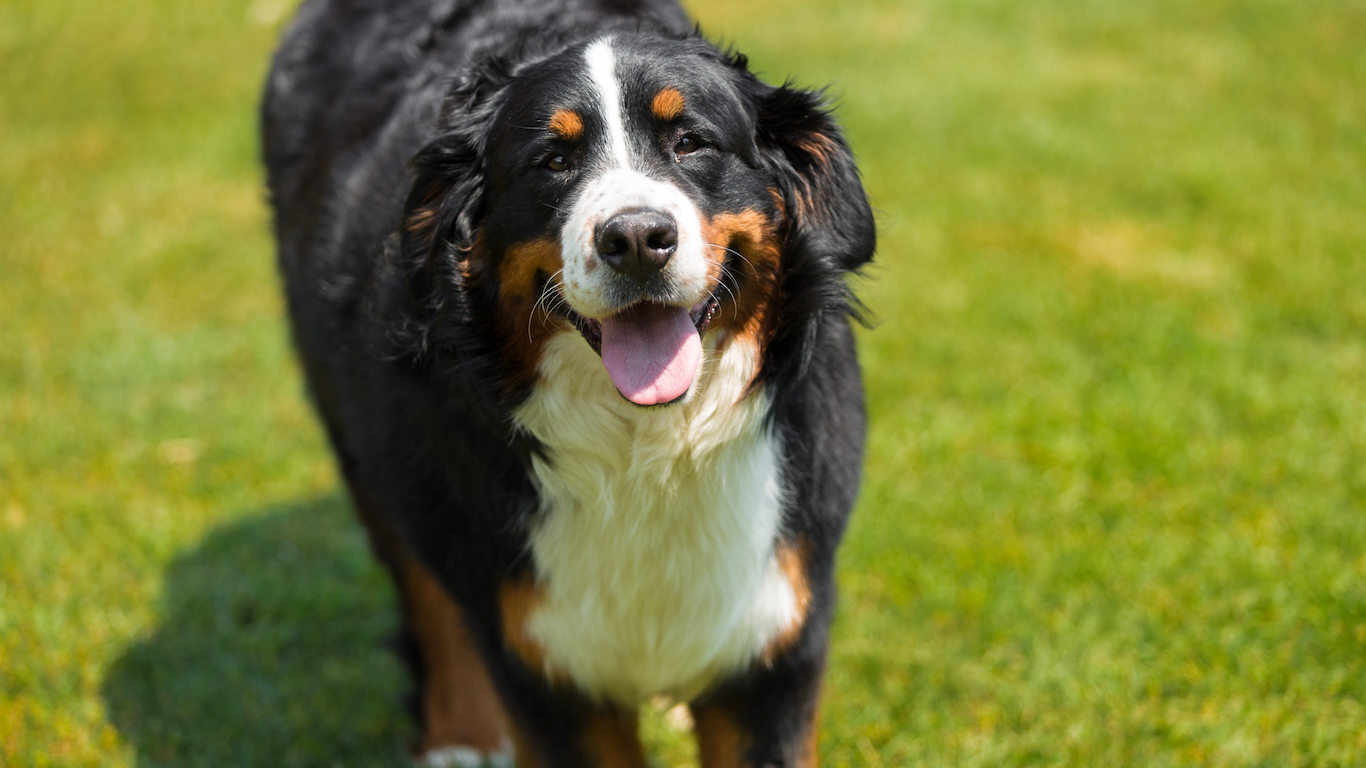
27. Bernese Mountain Dogs
> Rank in 2006: 41
> Rank in 1996: 67
> Typical life span: 7 to 10 years
> Average puppy price: $1,500
This particular breed hails from the Swiss Alps. In the 19th century, Bernese Mountain Dogs aided commerce by transporting carts filled with dairy product and loaves of bread to and from farms. These dogs were the perfect fit for such a laborious task because of their muscular build. They were known to haul loads as heavy as 1,000 pounds.
[in-text-ad-2]
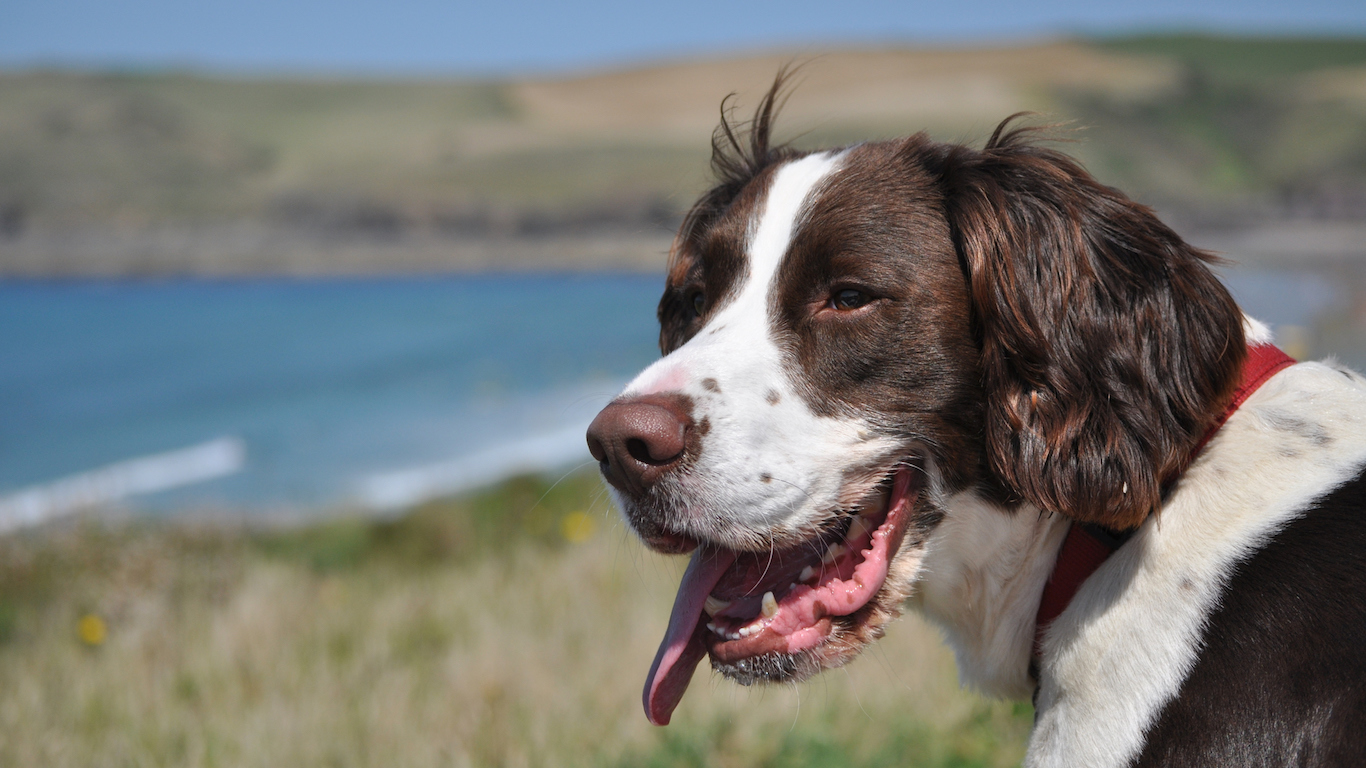
26. English Springer Spaniels
> Rank in 2006: 26
> Rank in 1996: 25
> Typical life span: 12 to 14 years
> Average puppy price: $2,000
This particular pup is named for its hunting style. Bred to be hunting dogs, the English Springer Spaniels were trained to “spring” game, that is, flushing the birds in the air.
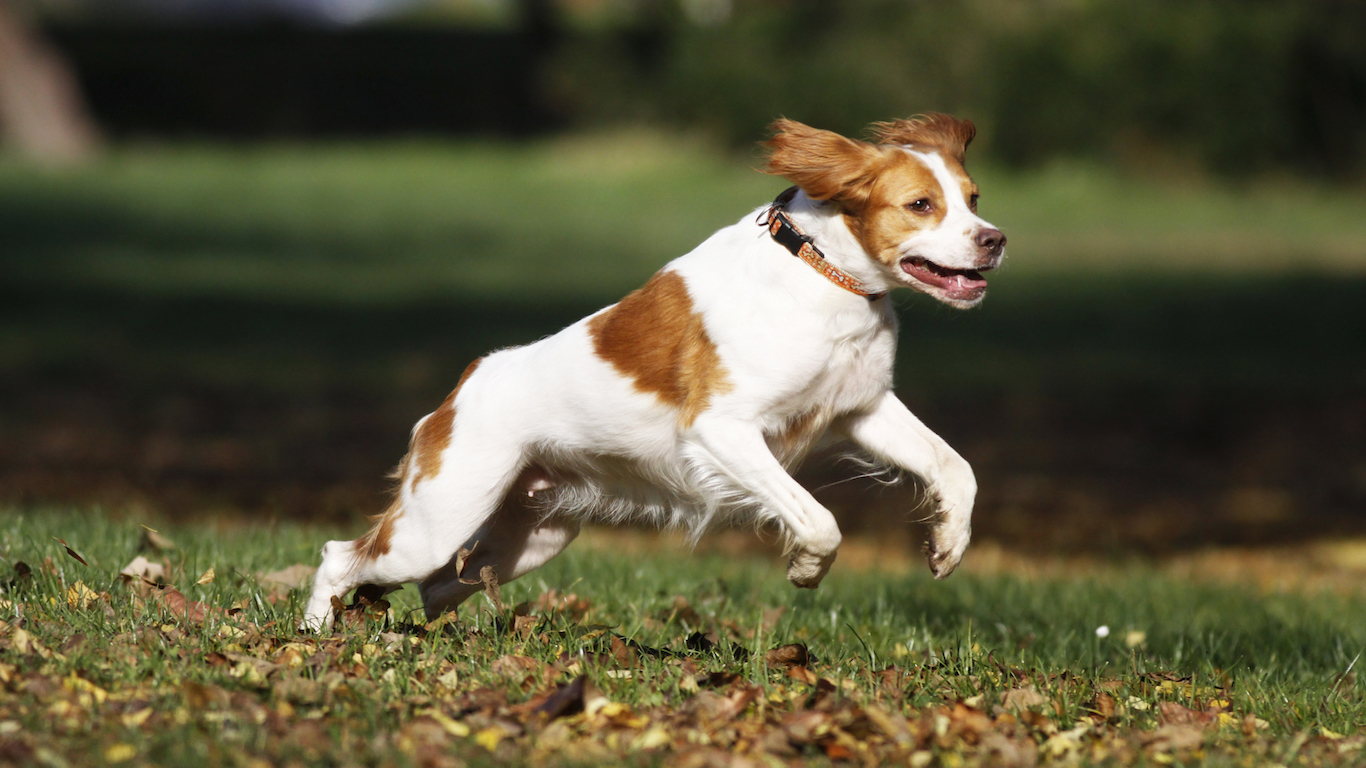
25. Brittanys
> Rank in 2006: 31
> Rank in 1996: 34
> Typical life span: 12 to 14 years
> Average puppy price: $1,500
Brittanys gets their name from their native French province. According to the AKC, the Brittany didn’t officially become recognized as a breed until the year 1907, when an orange and white colored pup named Boy in France was registered as the first Brittany Spaniel. Prior to this point, the breed was registered as one of many miscellaneous French Spaniels.
[in-text-ad]
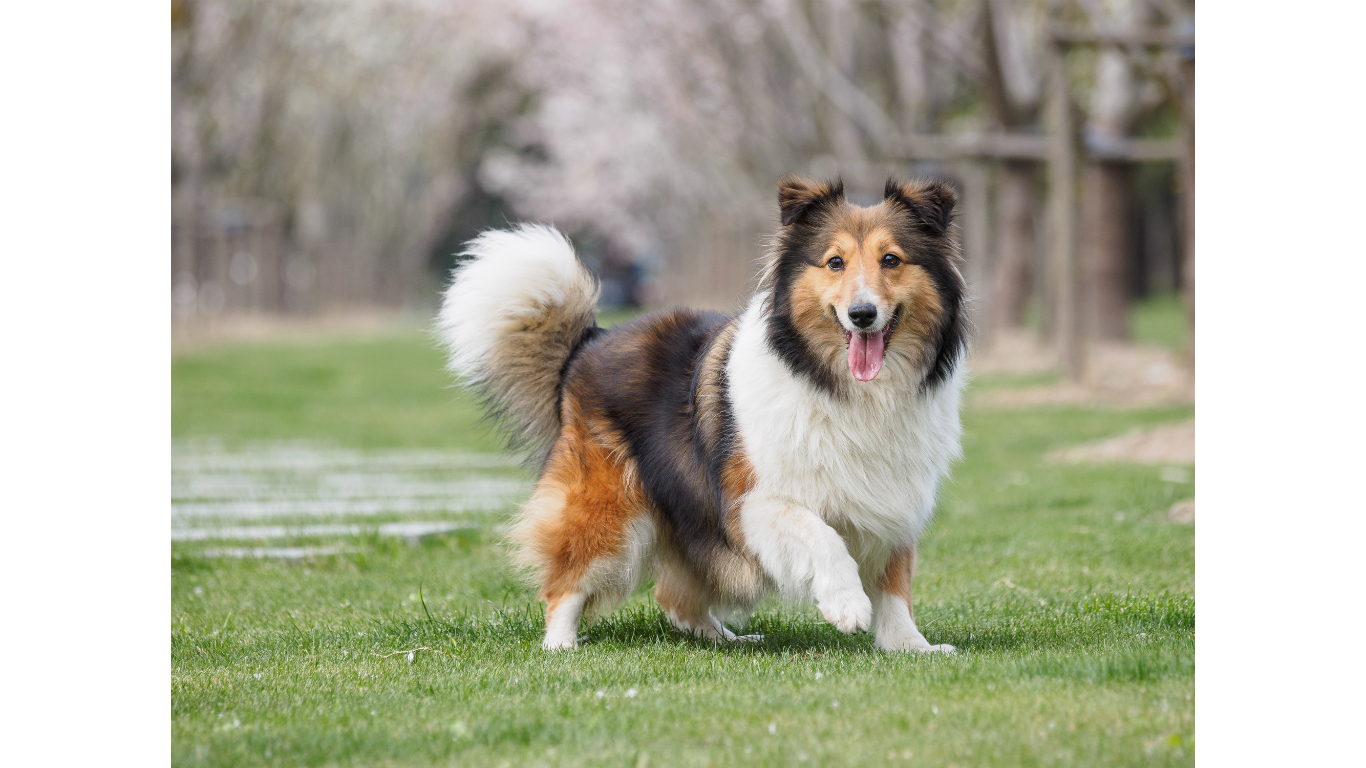
24. Shetland Sheepdogs
> Rank in 2006: 19
> Rank in 1996: 14
> Typical life span: 12 to 14 years
> Average puppy price: $1,500
Originating in the United Kingdom, the Shetland Sheepdog, or Sheltie, acquired its reputation as a farm dog in the late 18th century. While it was bred for many reasons, herding sheep was one of its primary duties. The Sheltie is considered one of the best obedience breeds.
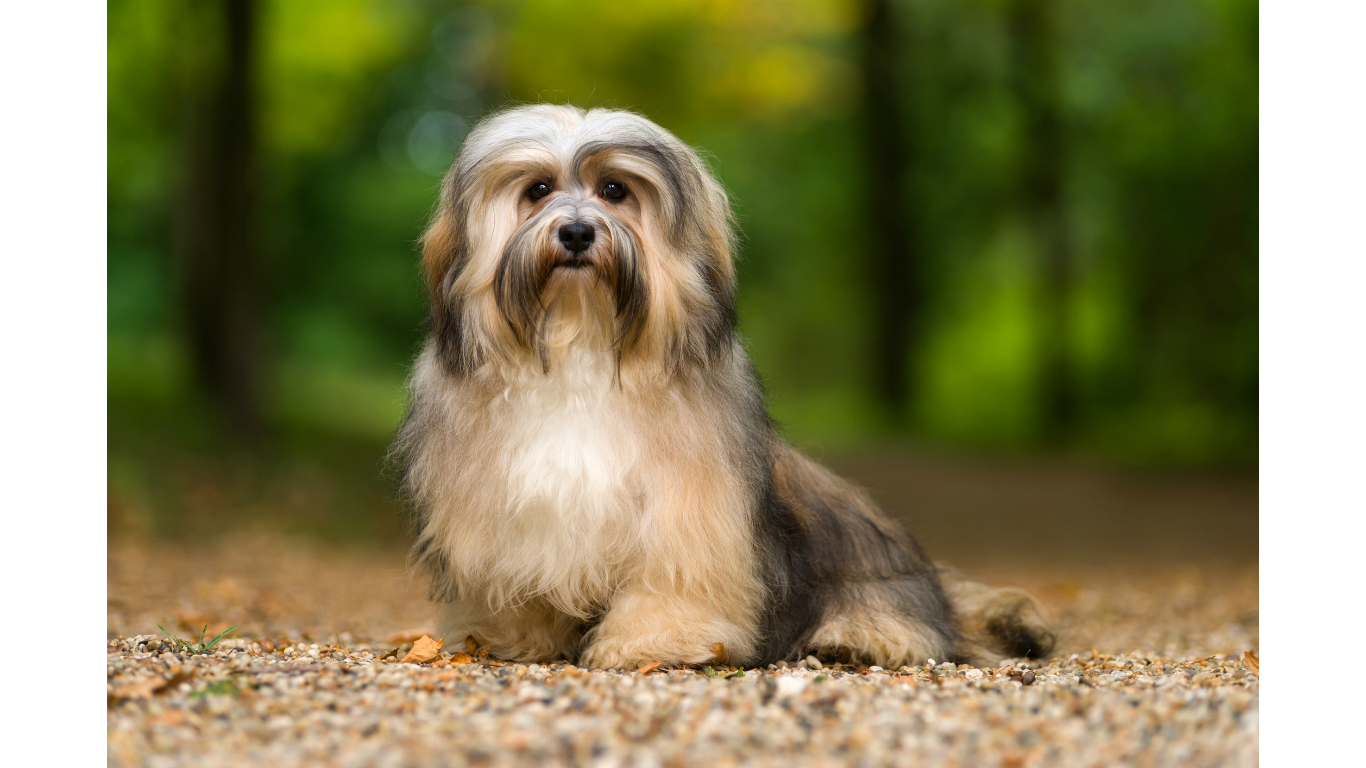
23. Havanese
> Rank in 2006: 38
> Rank in 1996: 93
> Typical life span: 14 to 16 years
> Average puppy price: $2,000
Can you guess where the first traces of this pooch are located? We’ll give you a hint. Another name for this breed is the Havana Silk Dog. That’s right, the Havanese is the only breed considered to be native to Cuba.
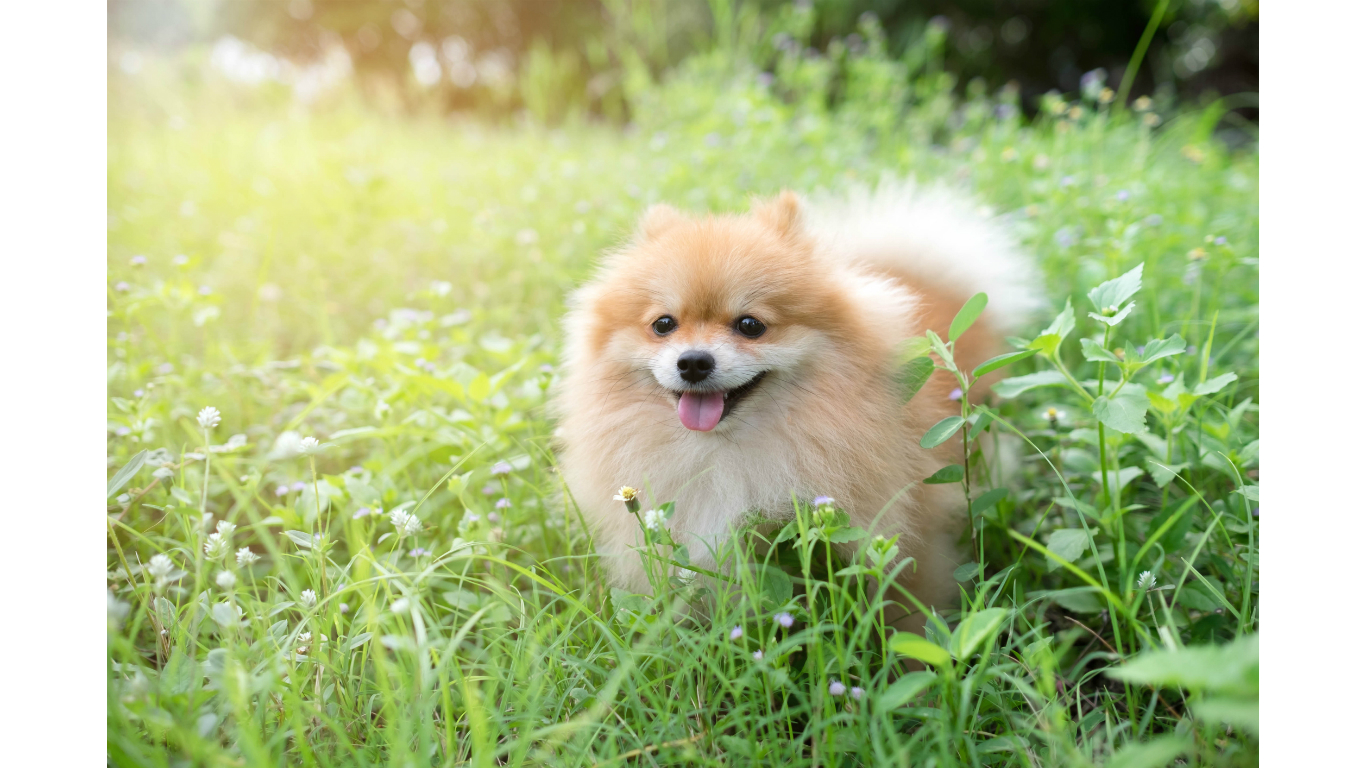
22. Pomeranians
> Rank in 2006: 14
> Rank in 1996: 10
> Typical life span: 12 to 16 years
> Average puppy price: $2,000
Queen Victoria of England came to adore this dog breed in her late age. During the latter part of her reign in the 19th century, the Queen adopted Marco, a Pomeranian from Florence Italy.
[in-text-ad-2]
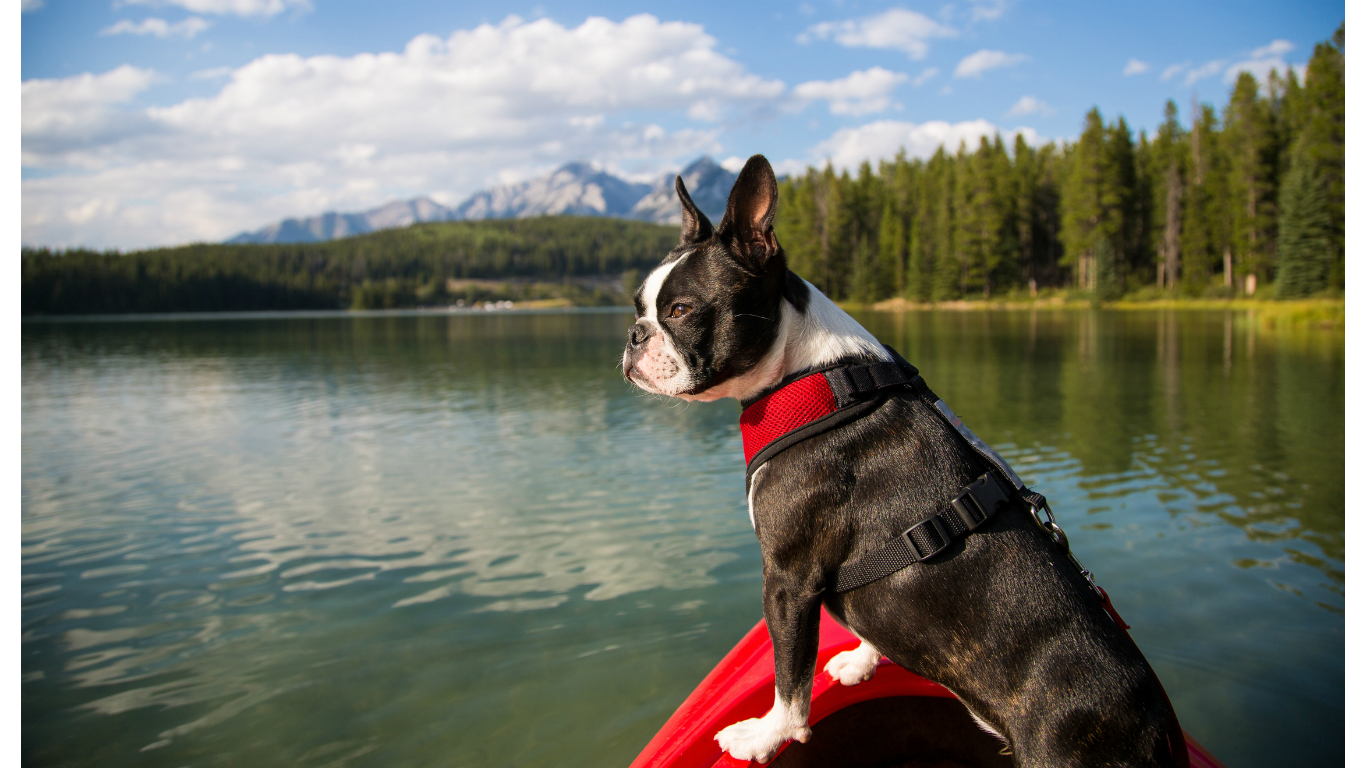
21. Boston Terriers
> Rank in 2006: 15
> Rank in 1996: 21
> Typical life span: 11 to 13 years
> Average puppy price: $1,200
As one may imagine, the Boston Terrier breed has its origins in Massachusetts. It has held the title of state dog since 1979. The dog is a crossbreed between an English Bulldog and a white English Terrier.

20. Shih Tzu
> Rank in 2006: N/A
> Rank in 1996: N/A
> Typical life span: 10 to 18 years
> Average puppy price: $1,500
The Shih Tzu originated in China. The breed made its debut in the United States in the late 1940s thanks to American soldiers who brought dogs back after being stationed in various European countries where the dog was already popular.
[in-text-ad]
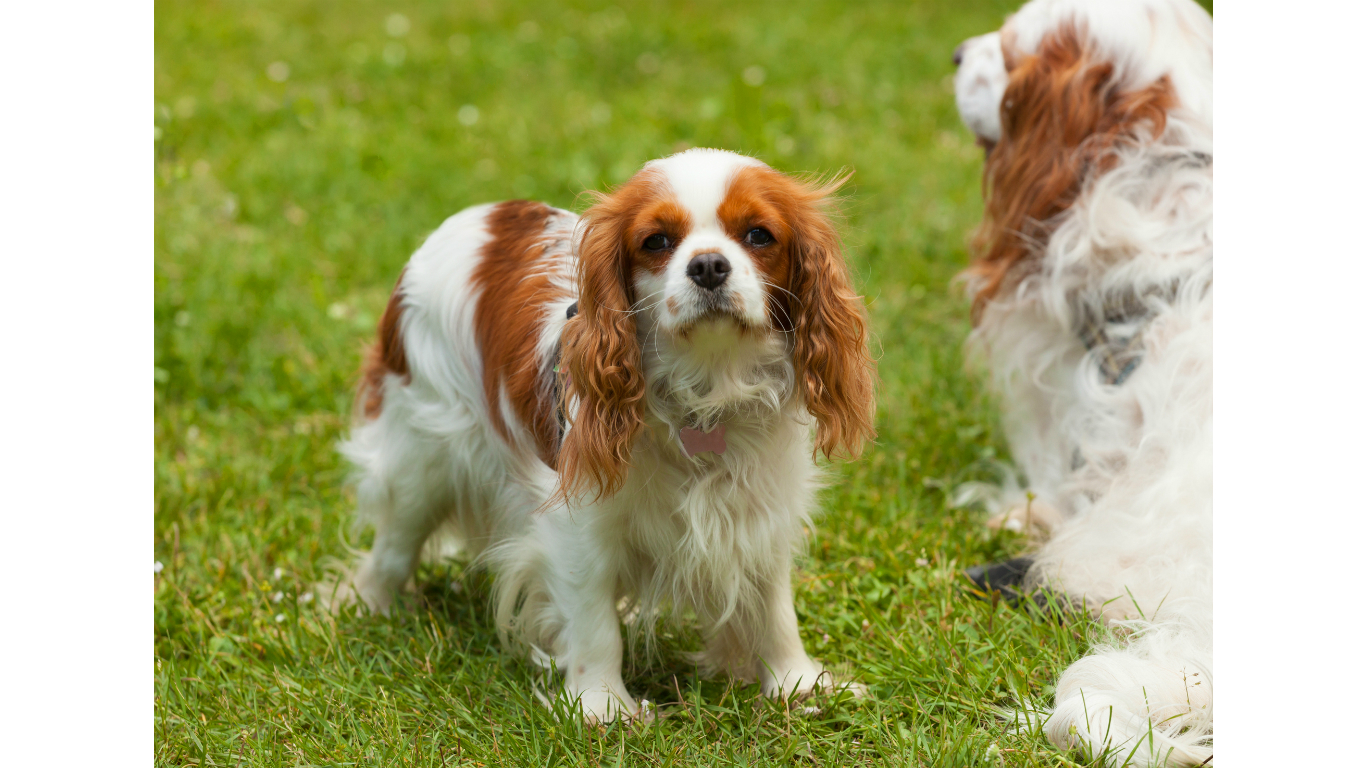
19. Cavalier King Charles Spaniels
> Rank in 2006: 27
> Rank in 1996: 75
> Typical life span: 12 to 15 years
> Average puppy price: $2,500
Believe it or not, this breed is named after King Charles II, who was very fond of the breed. Evidently he wouldn’t go anywhere without at least three of the pups by his side. In the early 20th century, the spaniel was popularized in the United States by Roswell Eldridge, a wealthy dog breed enthusiast.
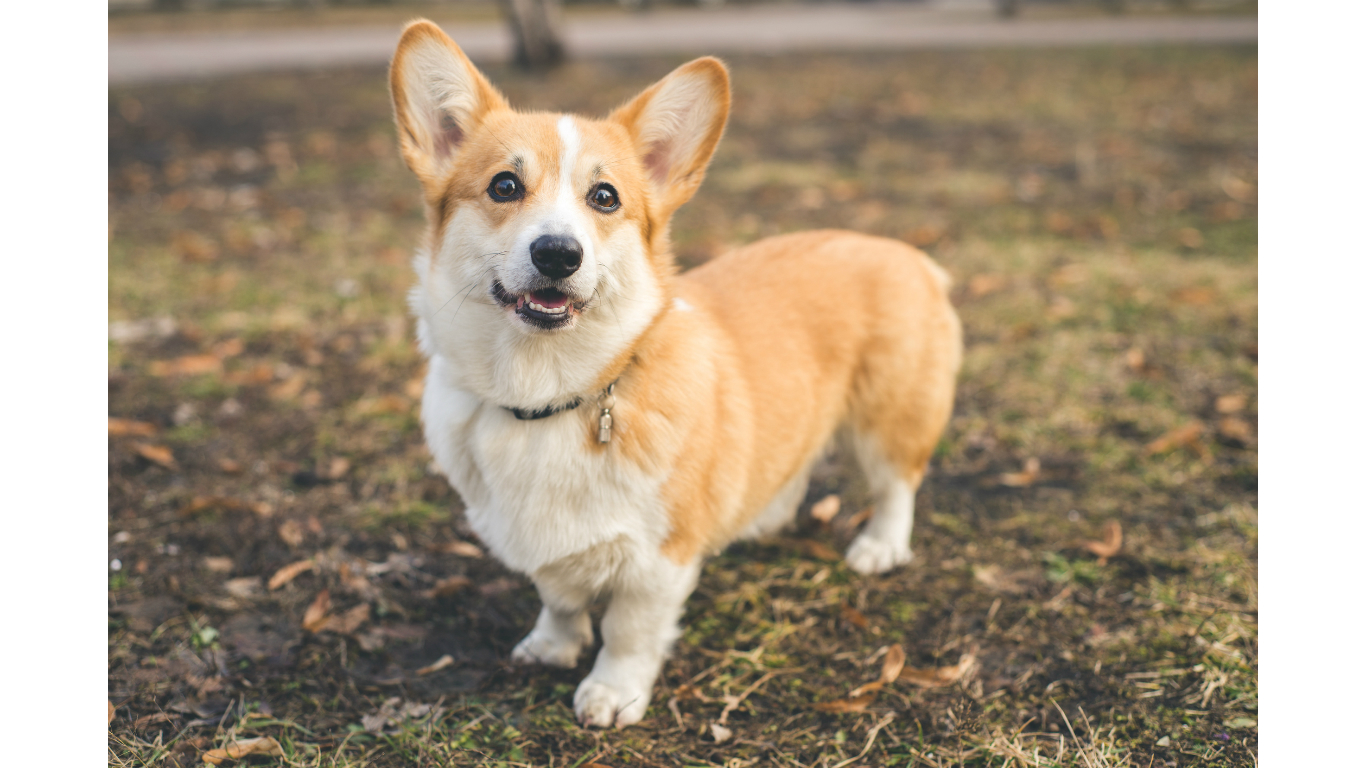
18. Pembroke Welsh Corgis
> Rank in 2006: 22
> Rank in 1996: 38
> Typical life span: 12 to 13 years
> Average puppy price: $1,500
Although the dog is a cattle herding dog breed which originated in Pembrokeshire, Wales, one of the most famous Pembroke Welsh Corgis, Rufus, may have been on the payroll of Amazon.com. As the unofficial mascot of the retail giant, Rufus would be found sitting in on meetings, mooching for treats from various employees, and accepting gifts from Amazon customers worldwide.
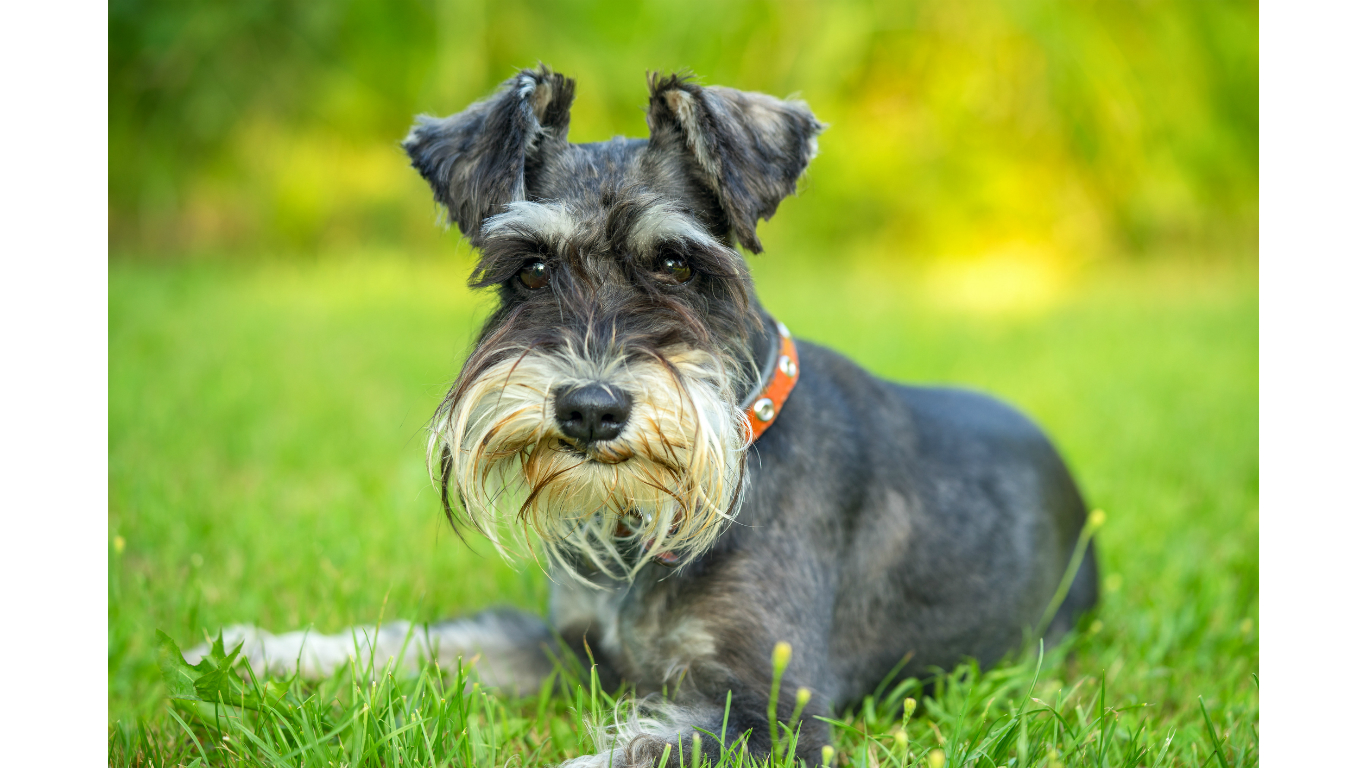
17. Miniature Schnauzers
> Rank in 2006: 10
> Rank in 1996: 16
> Typical life span: 12 to 15 years
> Average puppy price: $1,250
This breed’s thick, wiry coat may not be the softest but for good reason — the coat keeps debris off which means the dogs don’t carry much dirt into the house. Additionally, Miniature Schnauzers don’t shed nearly as much as Shetland Sheepdogs, which make dog very appealing to owners who have allergies.
[in-text-ad-2]
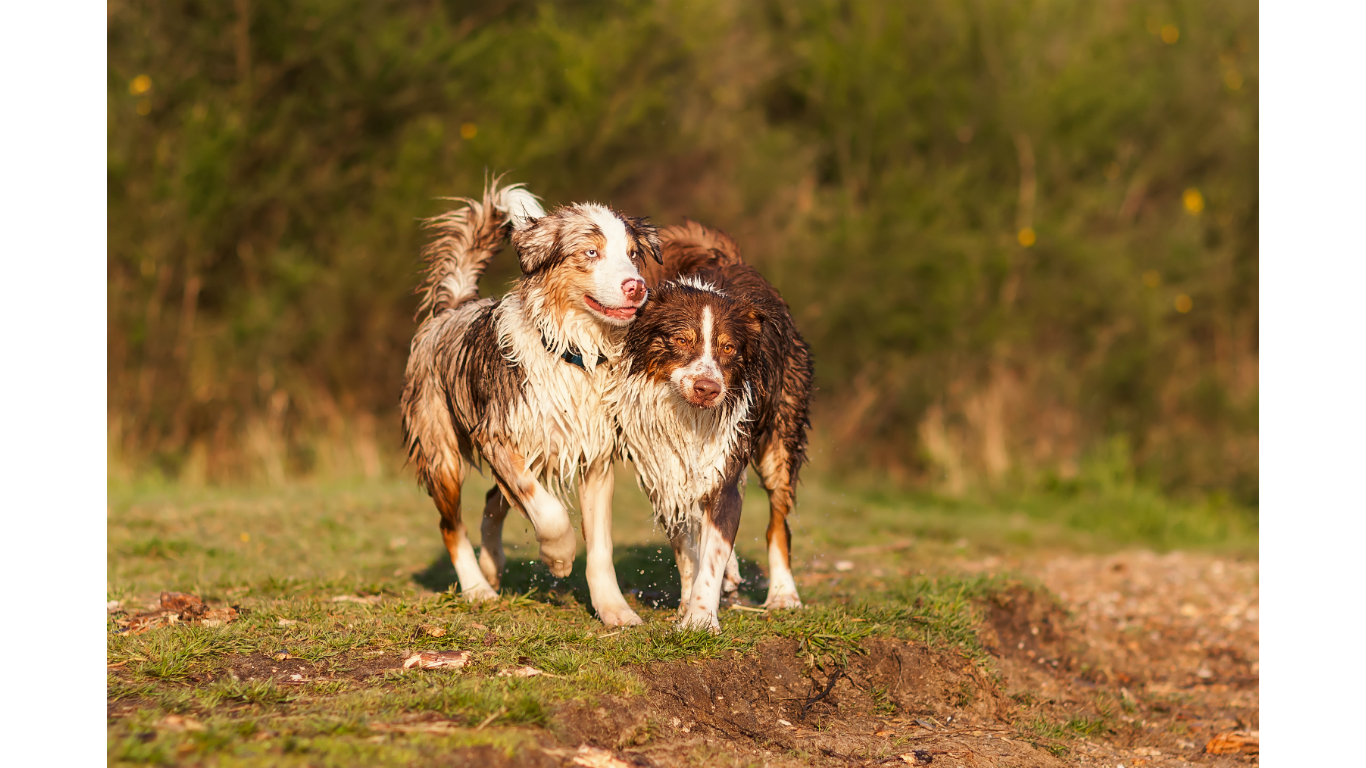
16. Australian Shepherds
> Rank in 2006: 34
> Rank in 1996: 40
> Typical life span: 12 to 15 years
> Average puppy price: $1,200
Australian Shepherds have two qualities they can boast about: herding sheep and partaking in the Rodeo. The classic 1950s Jay Sisler Show featured not one but two of these dogs, Stub and Shorty, who did rodeo routines like the teeter-totter, spin and dance, faking a hurt leg, and even jumping rope.
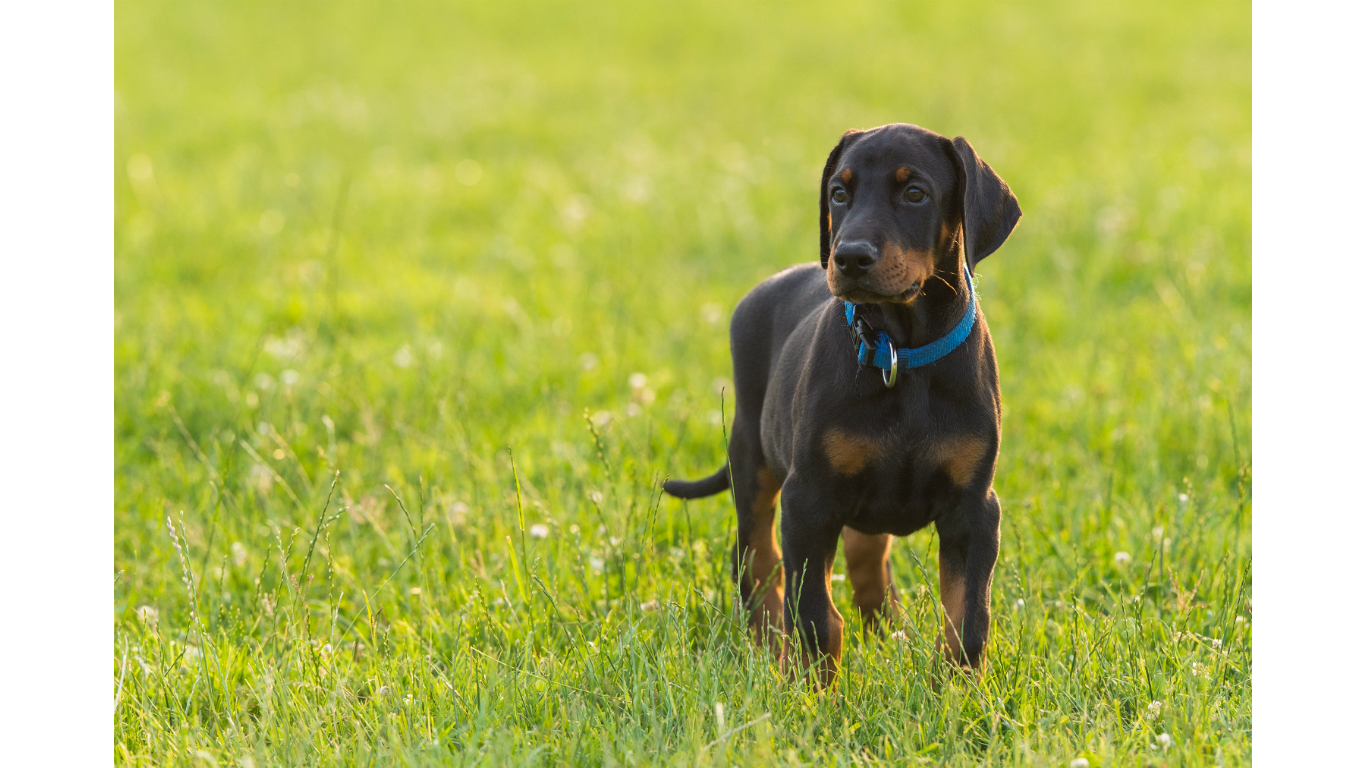
15. Doberman Pinschers
> Rank in 2006: 21
> Rank in 1996: 20
> Typical life span: 10 to 12 years
> Average puppy price: $1,350
Do you ever wonder who bred the first pup of a particular breed and why they did so? Doberman Pinschers have an interesting origin. They were first bred by a tax collector named Louis Dobermann, who had to peruse the streets of not-so-safe areas of town at night. Wanting a well mannered but also intimidating dog to walk alongside him on these late-night endeavors, he bred the Doberman Pinscher, a muscular canine with dark fur.
[in-text-ad]
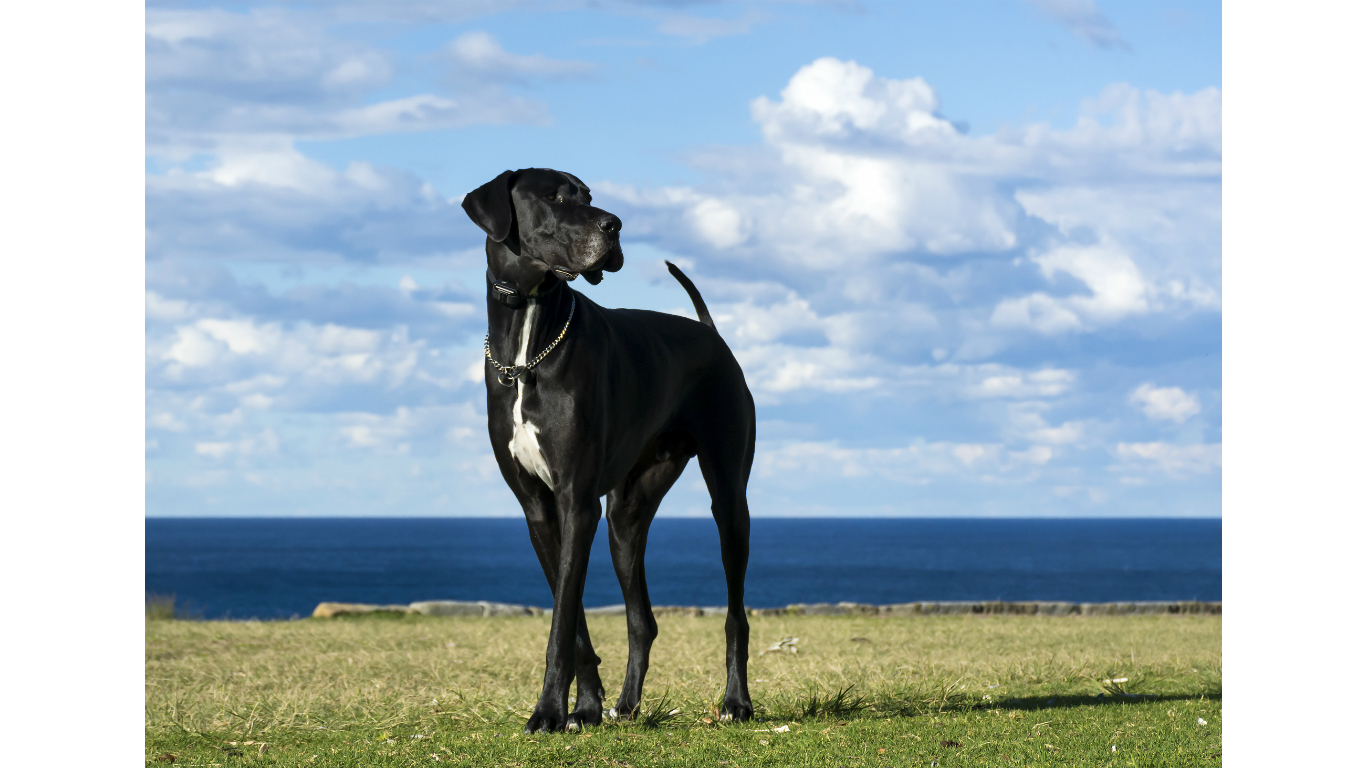
14. Great Danes
> Rank in 2006: 24
> Rank in 1996: 32
> Typical life span: 7 to 10 years
> Average puppy price: $1,250
As gentle and tame as Great Danes generally are in the household today, their demeanor was entirely different four centuries ago. Germans raised this breed to hunt wild boars, which average around 400 pounds. As a result, Great Danes were taught to be aggressive and ruthless — not the kind of pooch you’d want mingling around your kiddos.

13. Dachshunds
> Rank in 2006: 6
> Rank in 1996: 7
> Typical life span: 12 to 16 years
> Average puppy price: $1,000
Known for both agility and audacity, the Dachshund was named the first official Olympic mascot at the 1972 Munich games. The mascot, Waldi, sports a light blue color on his head and tail with stripes of at least three of the six Olympic colors on his chest and belly.
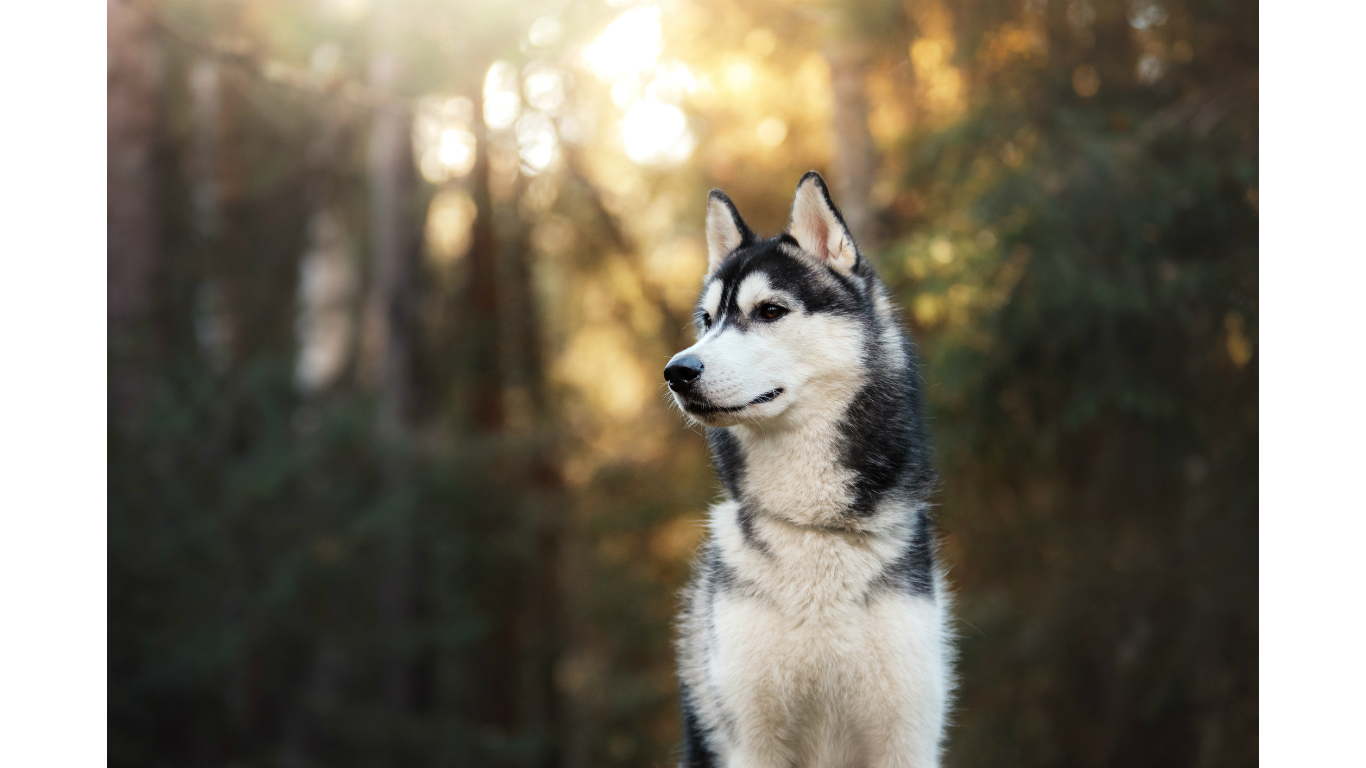
12. Siberian Huskies
> Rank in 2006: 25
> Rank in 1996: 17
> Typical life span: 12 to 14 years
> Average puppy price: $1,000
This iconic sled dog was originally bred in northeastern Asia. The first team of Siberian Huskies made its debut in the United States in the early 20th century, at the All Alaska Sweepstakes Race. The Husky’s thick, fluffy coat is likely part of the appeal for owners. On the other hand, Huskies are bred for cold climates, and outside the arctic these dogs shed constantly.
[in-text-ad-2]
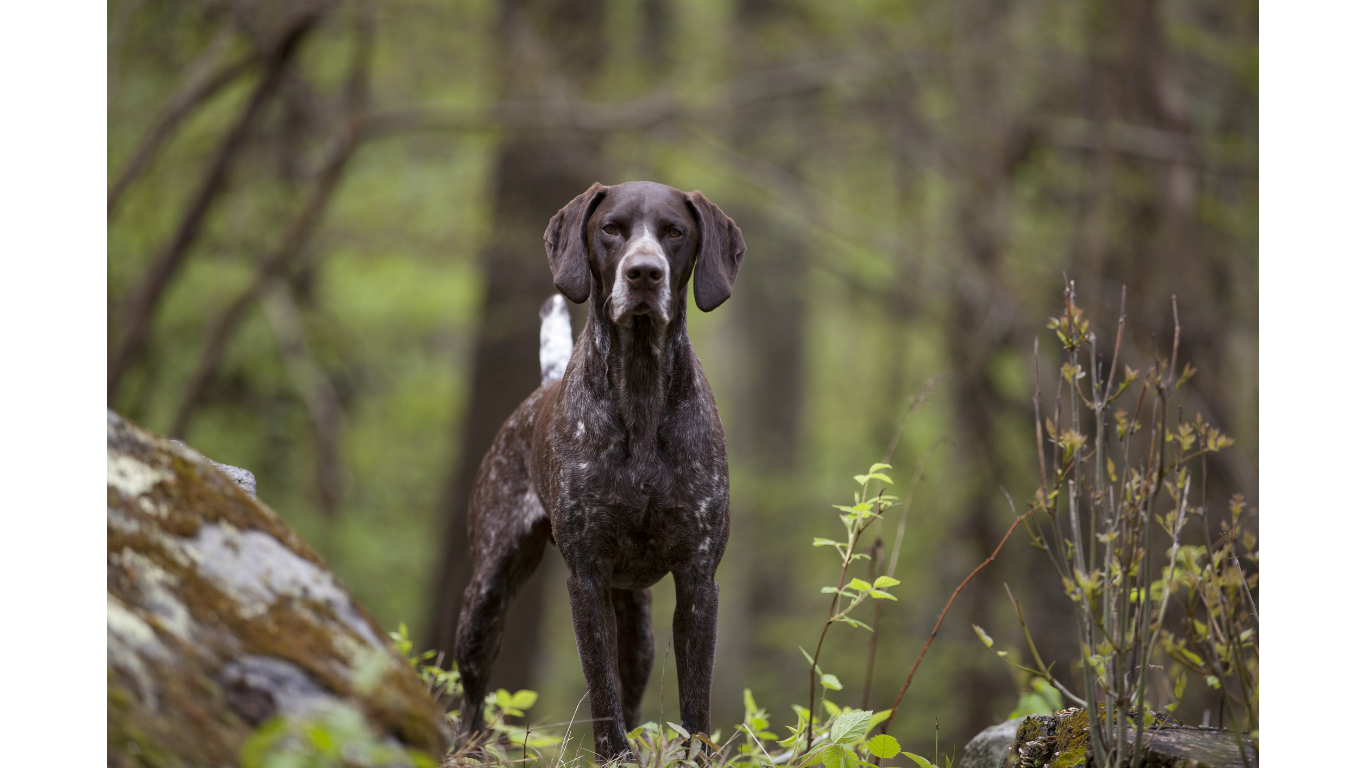
11. German Shorthaired Pointers
> Rank in 2006: 20
> Rank in 1996: 24
> Typical life span: 10 to 12 years
> Average puppy price: $1,200
Like a number of the most popular dog breeds, the German Shorthair Pointer is considered a prized hunting dog. They are bred to have excellent senses of smell, showcased as hunting companions, but also by their wide use by security personnel like the TSA.
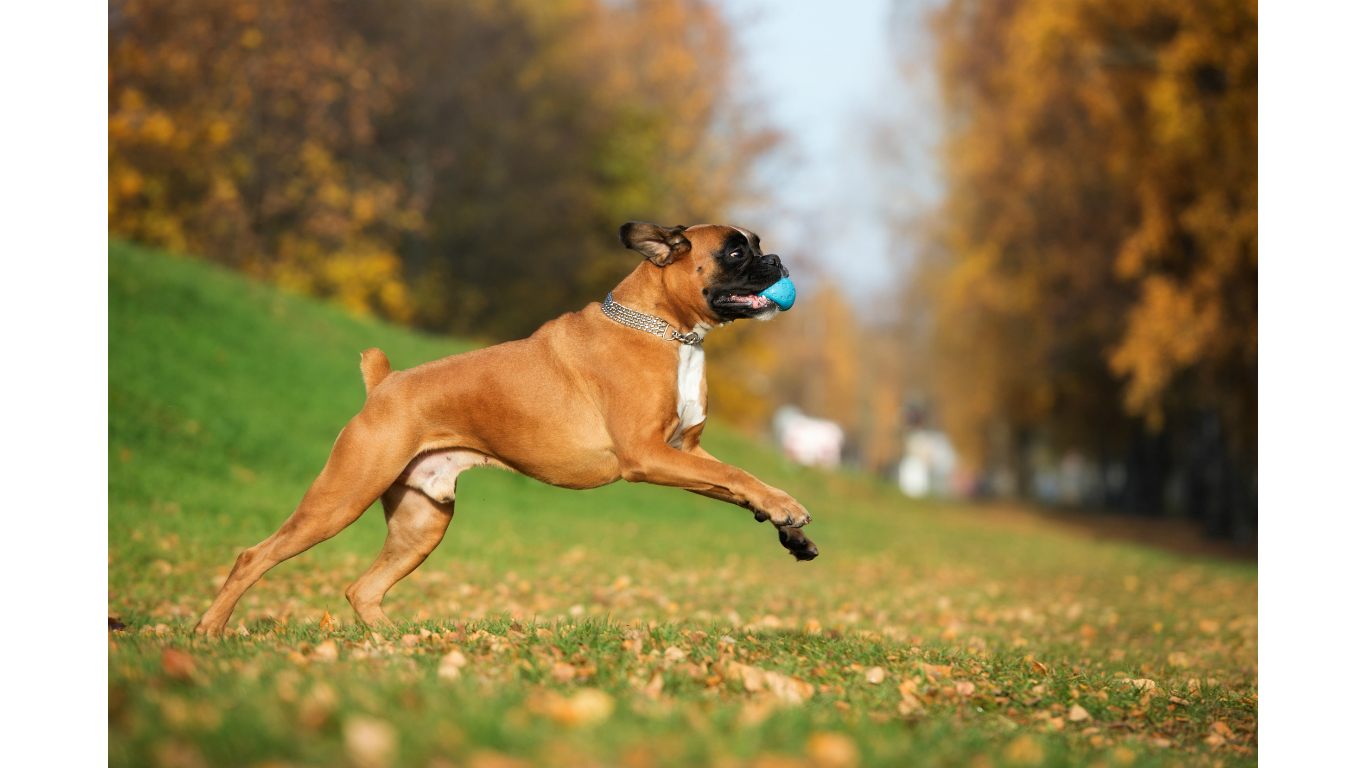
10. Boxers
> Rank in 2006: 7
> Rank in 1996: 13
> Typical life span: 10 to 12 years
> Average puppy price: $1,500
Active and exuberant, Boxers need at least two hours of exercise per day in order to maintain sanity. If they don’t, they reportedly become restless and bored to the point where they start chewing things up and digging at whatever surface is underneath them. Save your carpet and decor by letting your Boxer get two hours of cardio every day.
[in-text-ad]
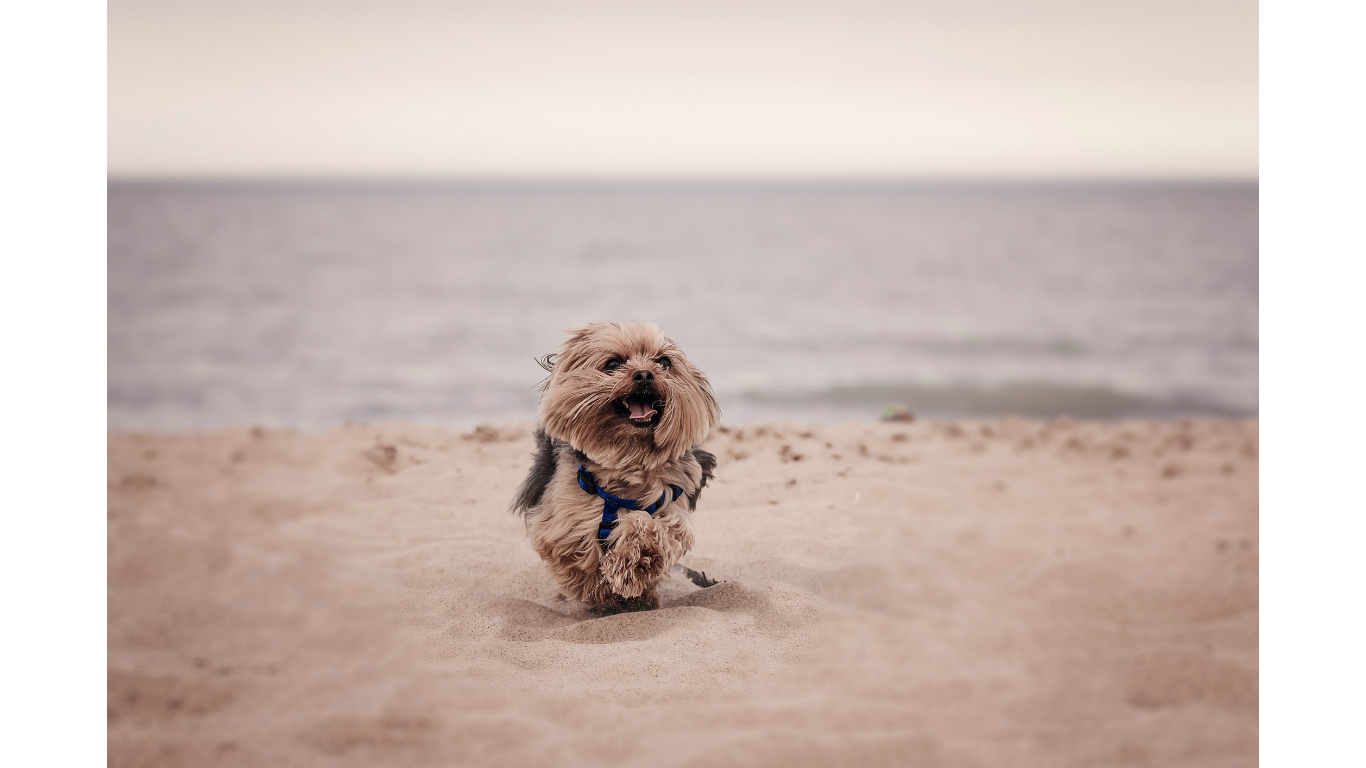
9. Yorkshire Terriers
> Rank in 2006: 2
> Rank in 1996: 9
> Typical life span: 11 to 15 years
> Average puppy price: $2,000
Based on one American story, no one could question the competence of the Yorkshire Terrier breed. U.S. soldier, Bill Wynne, encountered Yorkshire Terrier Smoky in WWII. He retrieved her from a foxhole and from then on out, Smoky became both his companion and helpful hand. She helped soldiers during the war by running through pipes and threading communication wires under a former Japanese airstrip. Without her help, soldiers would have had to expose themselves. After the war she began her career as a therapy dog for wounded soldiers, visiting various hospitals throughout the U.S.
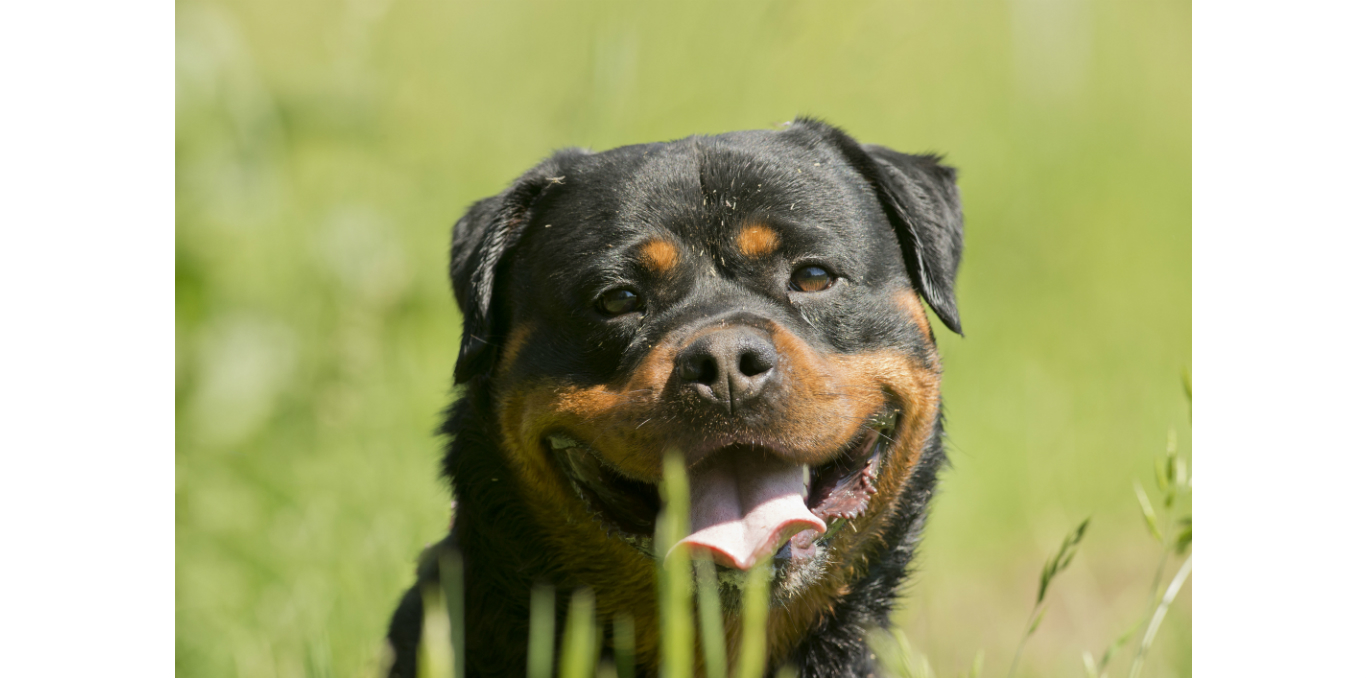
8. Rottweilers
> Rank in 2006: 17
> Rank in 1996: 2
> Typical life span: 9 to 10 years
> Average puppy price: $1,800
Unlike many of the breeds on this list, the Rottweiler’s origin is not documented. It is believed, however, that the breed descended from Roman cattle dogs and trekked into Southern Germany alongside Roman armies in the years 73 and 74 AD.

7. Poodles
> Rank in 2006: 8
> Rank in 1996: 6
> Typical life span: Standard: 10 to 13; Toy & Miniature: 15 to 18 years
> Average puppy price: $2,000
According to the AKC, this breed is known as the national dog of France. This fancy pooch, considered among the smarter and more elegant dog options, is the only breed that comes in three sizes: standard, miniature, and toy. Which one do you prefer?
[in-text-ad-2]
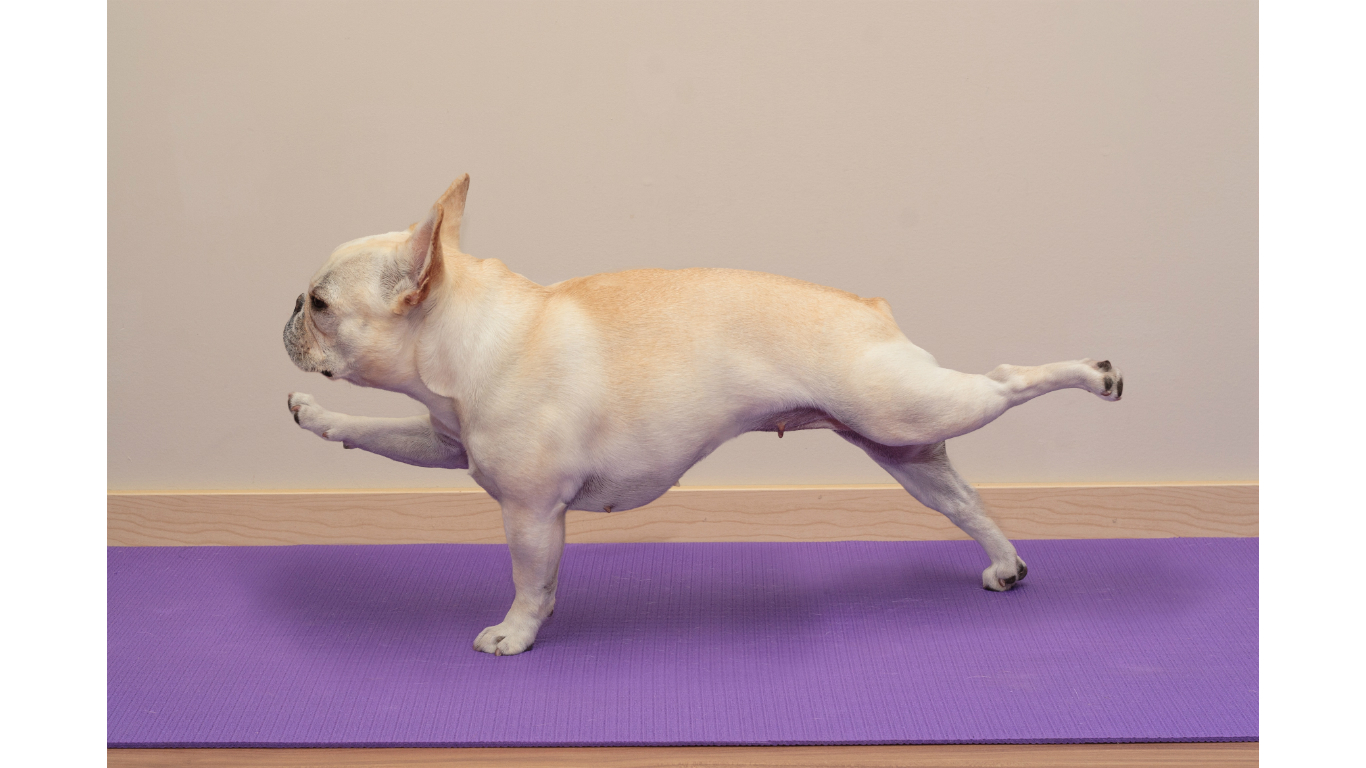
6. French Bulldogs
> Rank in 2006: 36
> Rank in 1996: 82
> Typical life span: 10 to 12 years
> Average puppy price: $3,000
Contrary to its name, the French Bulldog actually comes from Nottingham, England — not France. The dogs eventually migrated to France with English craftsmen that lost their jobs during the Industrial Revolution. The breed’s popularity in France outpaced its demand in England, so it adopted the French title from that moment on.

5. Beagles
> Rank in 2006: 5
> Rank in 1996: 5
> Typical life span: 10 to 15 years
> Average puppy price: $850
President Lyndon Johnson owned two Beagles during his presidency that he cleverly named Him and Her. Photographs have been taken of him walking and playing with his pups in the White House. Bred for many generations to follow their noses, the small hunting hounds were once popular for fox hunting.
[in-text-ad]
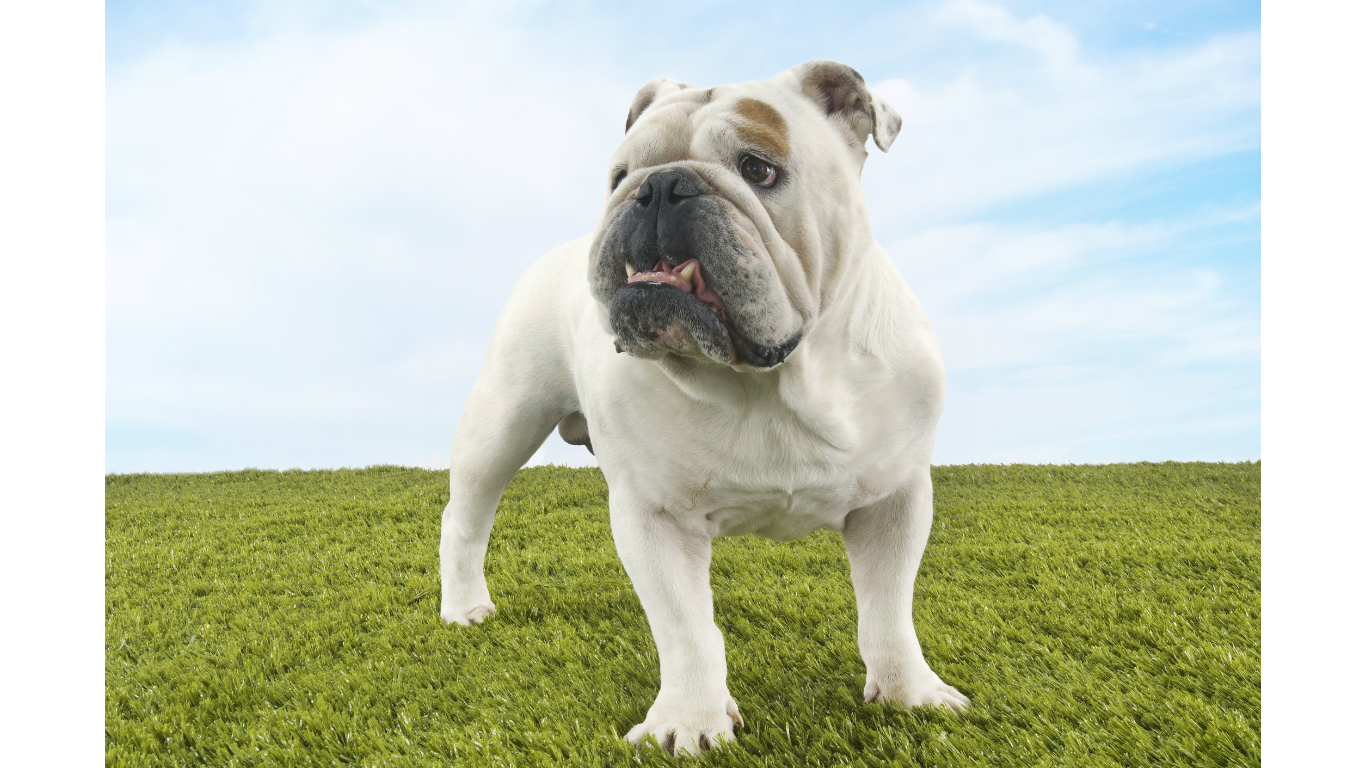
4. Bulldogs
> Rank in 2006: 12
> Rank in 1996: 27
> Typical life span: 8 to 10 years
> Average puppy price: $3,000
The fourth most popular breed, this breed is known for its wrinkled face and pushed-in nose. The Bulldog’s short nose causes respiratory problems and at higher altitudes makes it harder for the dog to breathe. Bulldogs have also endured issues with heat regulation, to boot. Many airlines, including American, Continental, and United, have enforced restrictions on when these dogs can fly, while Delta and others have gone so far as to ban them from flying in cargo loads.
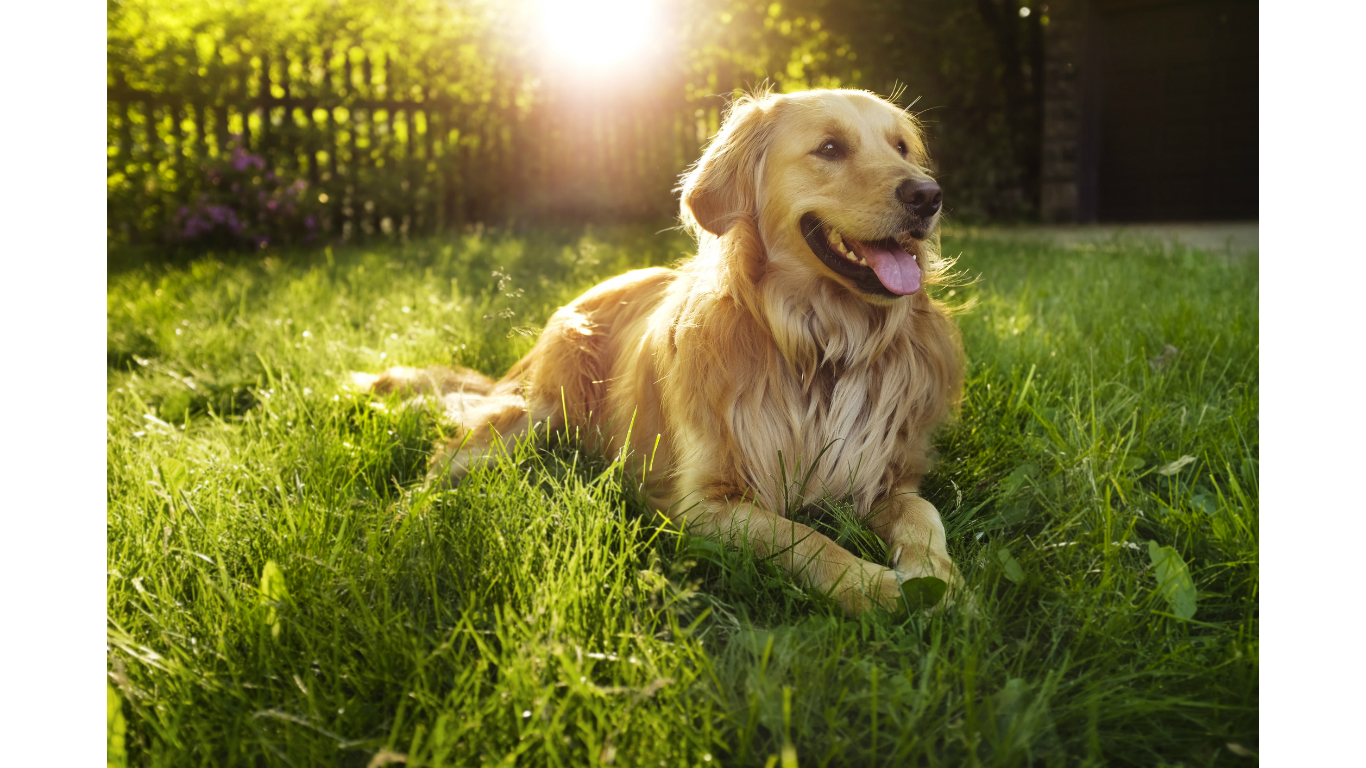
3. Golden Retrievers
> Rank in 2006: 4
> Rank in 1996: 4
> Typical life span: 10 to 12 years
> Average puppy price: $2,000
Clocking in at lucky number three, Golden Retrievers, or Goldies, are a newer breed having originated in Scotland in the 19th century. Goldies are not only devoted companions, they’re also incredibly obedient and make excellent guide dogs for the blind.
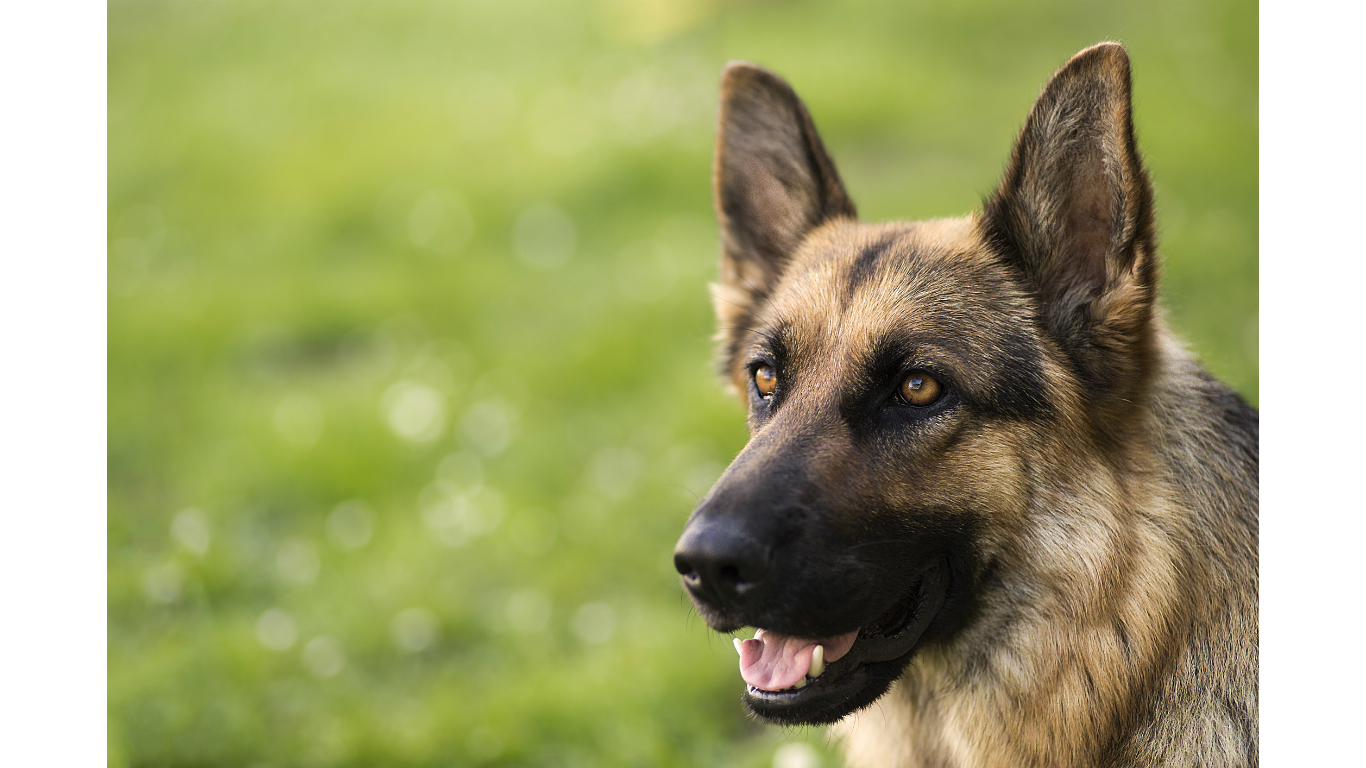
2. German Shepherd Dogs
> Rank in 2006: 3
> Rank in 1996: 3
> Typical life span: 7 to 10 years
> Average puppy price: $2,000
This very popular and capable working breed is often utilized by police and the military. Police use German Shepherds for tracking, locating narcotics, and patrol among many other uses, while the military uses them to sniff explosives. The dogs also help in search and rescue operations, famously at the site of the collapsed World Trade Center after the 9/11 terror attacks. They are also well suited as guide dogs for the visually impaired. Notice the word “dog” in the title? German Shepherd is one of the few breeds with “dog” in its official title — perhaps in its case needed to distinguish between this intelligent shepherd dog from the shepherd human.
[in-text-ad-2]
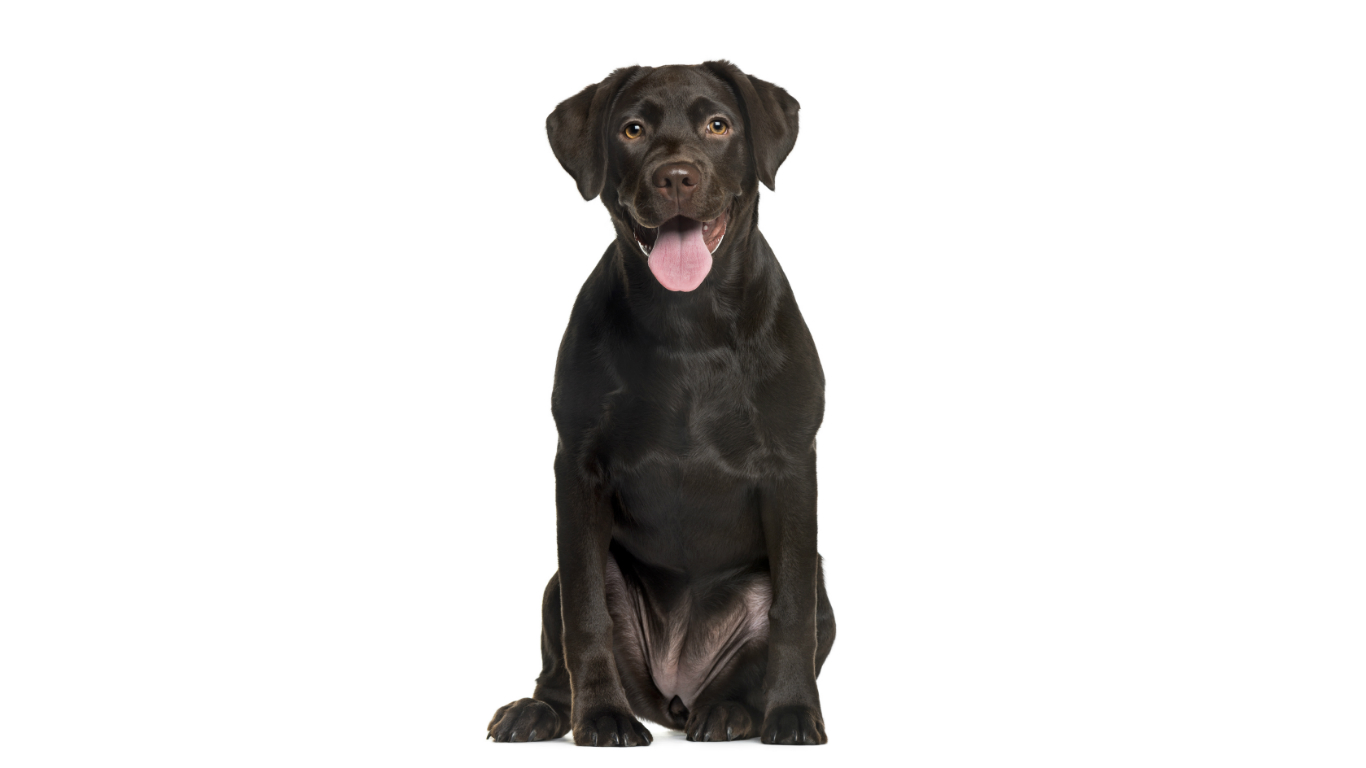
1. Labrador Retrievers
> Rank in 2006: 1
> Rank in 1996: 1
> Typical life span: 10 to 12 years
> Average puppy price: $1,500
The most popular dog breed of 2016 is none other than the Labrador Retriever. But this isn’t its first year claiming the title, and it’s certainly not its second, or even 10th time. The breed has taken the top spot for 26 consecutive years, which is the longest reign of any breed in AKC history. Perhaps even more than the German Shepherd Dog, Labradors are frequently used by the U.S. military and police. Jake, a black Labrador, served as a search and rescue dog following the September 11 attacks and Hurricane Katrina.
Get Ready To Retire (Sponsored)
Start by taking a quick retirement quiz from SmartAsset that will match you with up to 3 financial advisors that serve your area and beyond in 5 minutes, or less.
Each advisor has been vetted by SmartAsset and is held to a fiduciary standard to act in your best interests.
Here’s how it works:
1. Answer SmartAsset advisor match quiz
2. Review your pre-screened matches at your leisure. Check out the advisors’ profiles.
3. Speak with advisors at no cost to you. Have an introductory call on the phone or introduction in person and choose whom to work with in the future
Thank you for reading! Have some feedback for us?
Contact the 24/7 Wall St. editorial team.
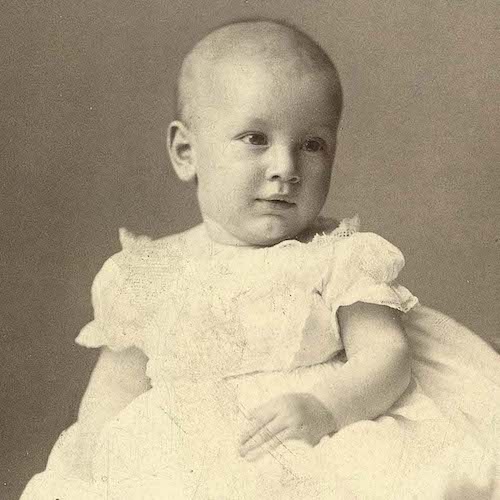 24/7 Wall St.
24/7 Wall St. 24/7 Wall St.
24/7 Wall St.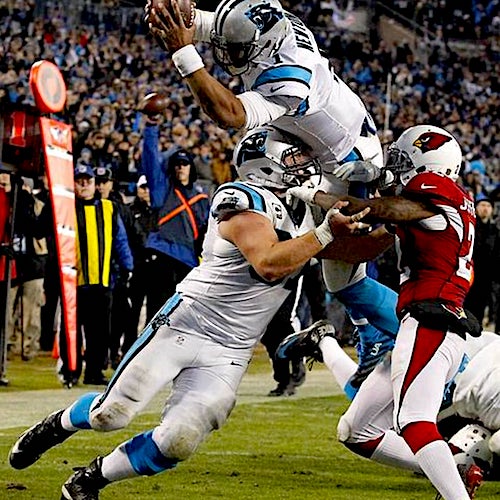 24/7 Wall St.
24/7 Wall St. 24/7 Wall St.
24/7 Wall St.



